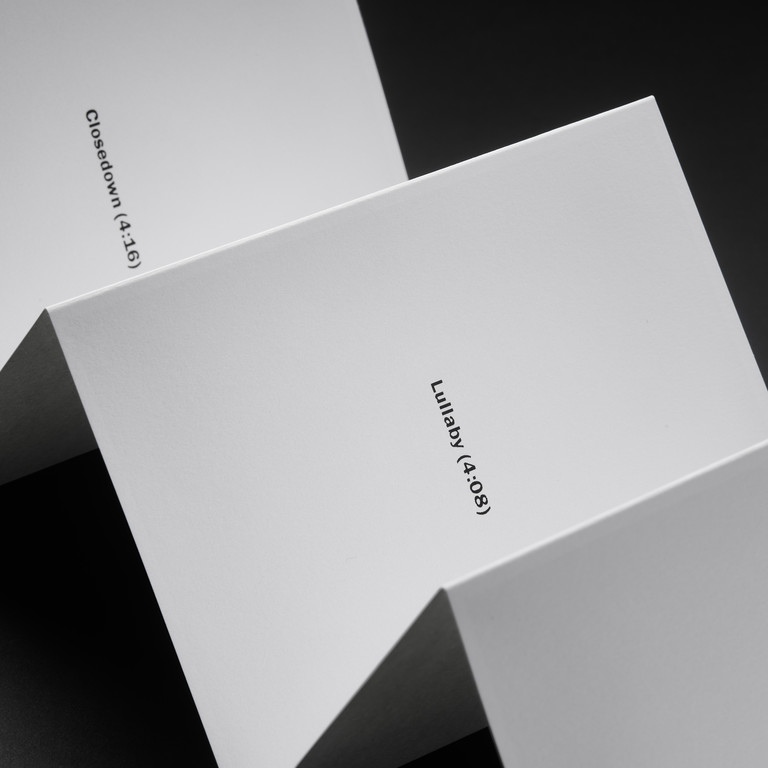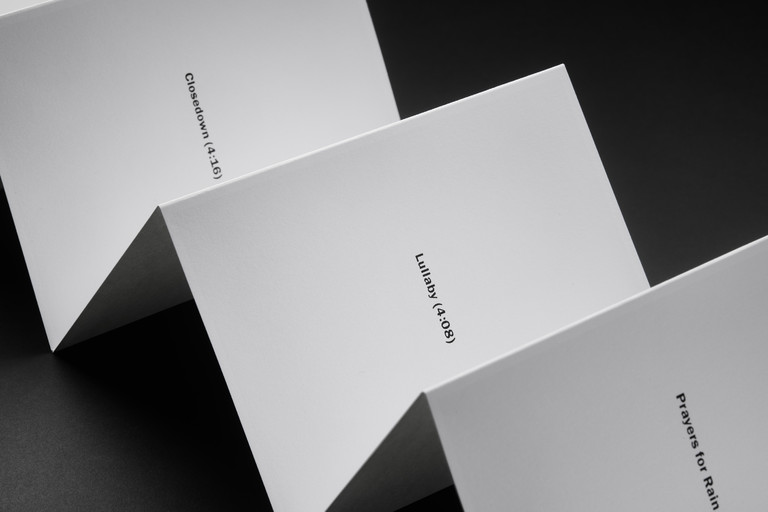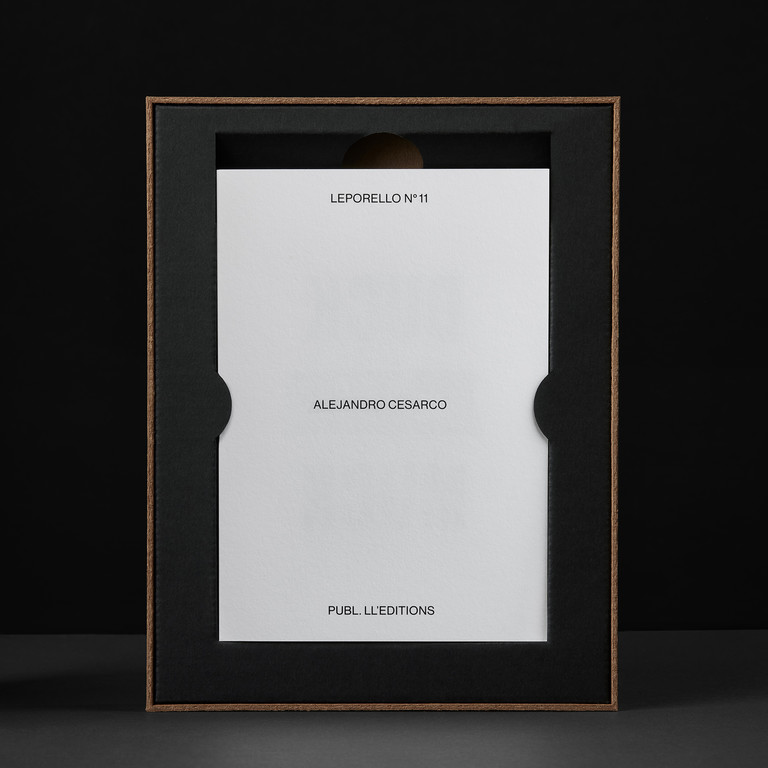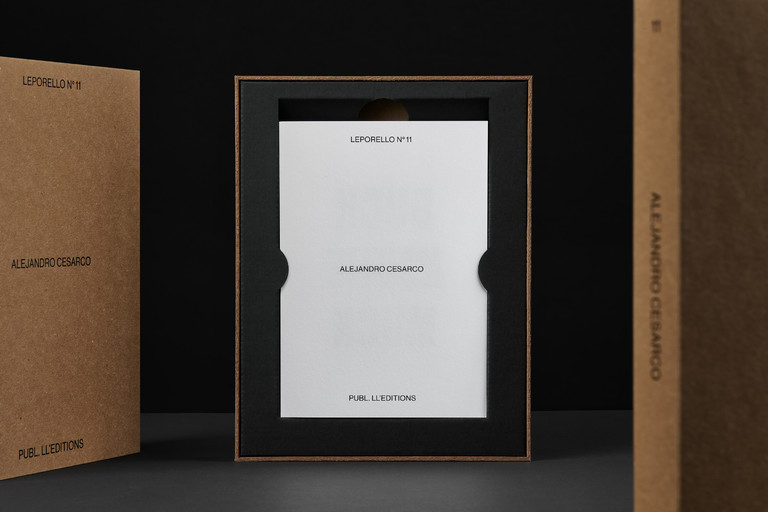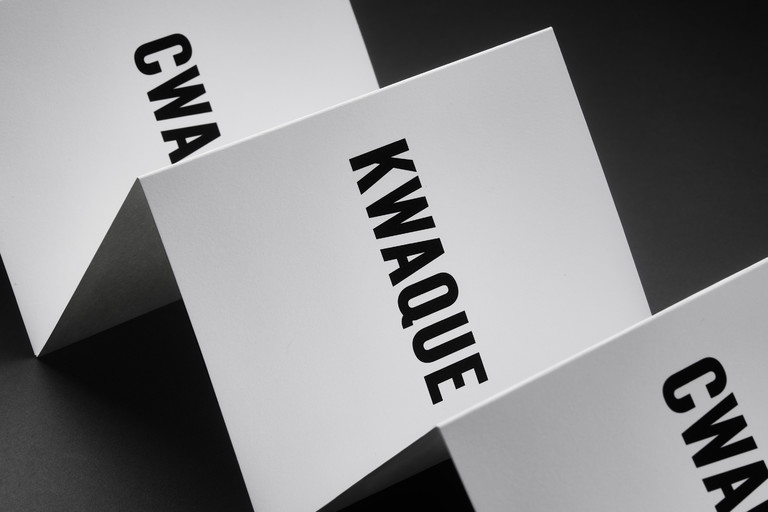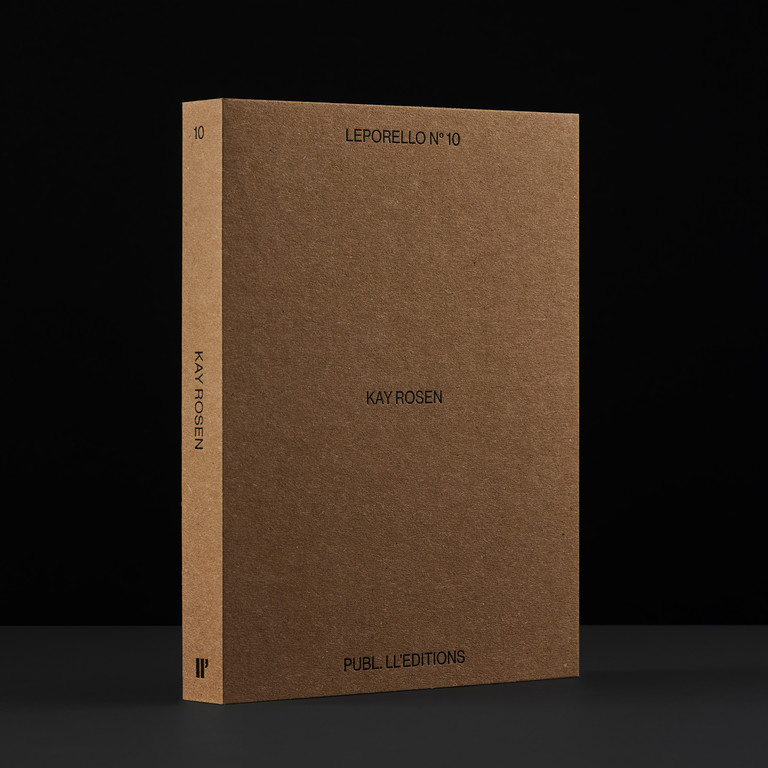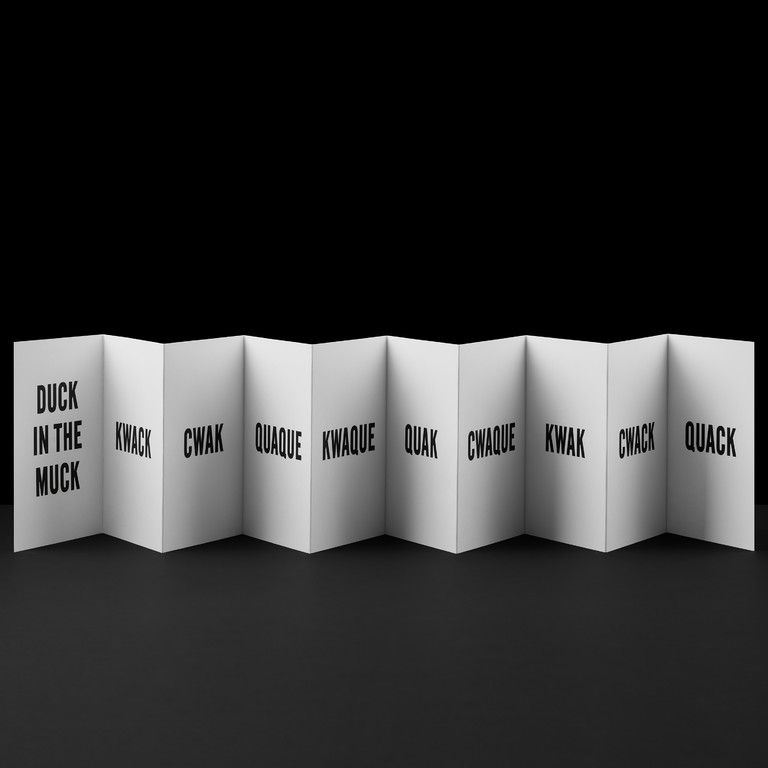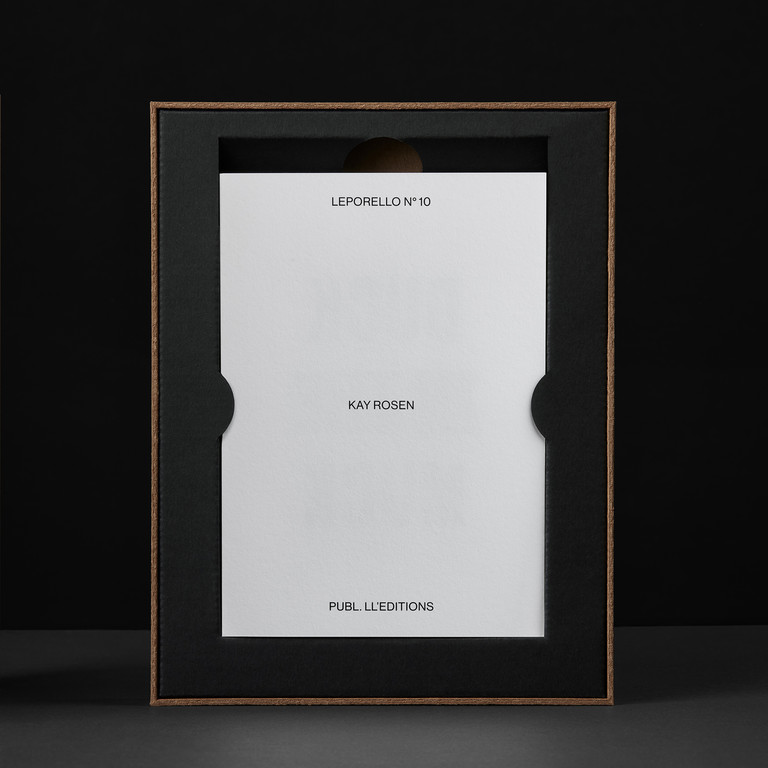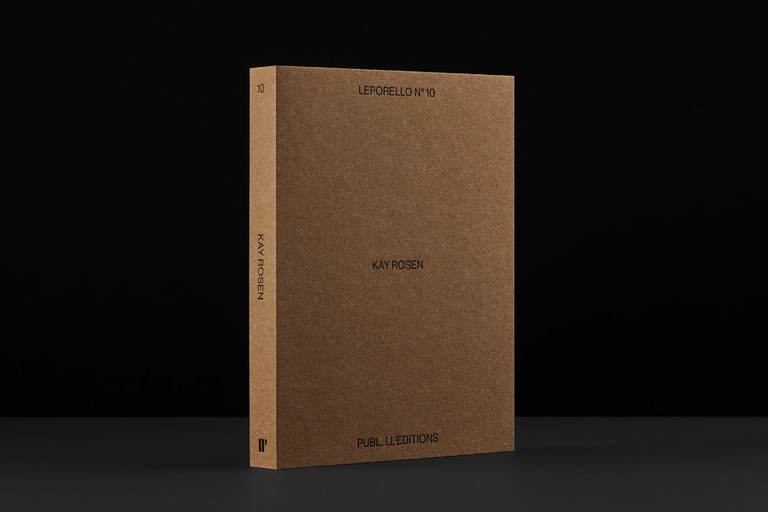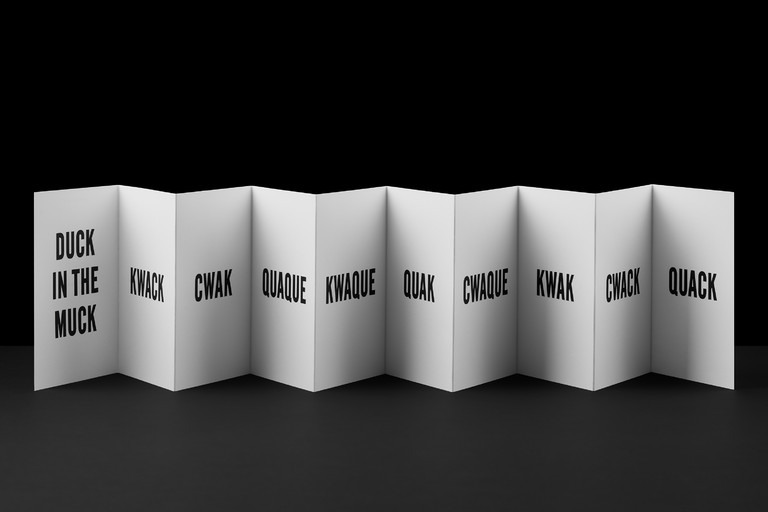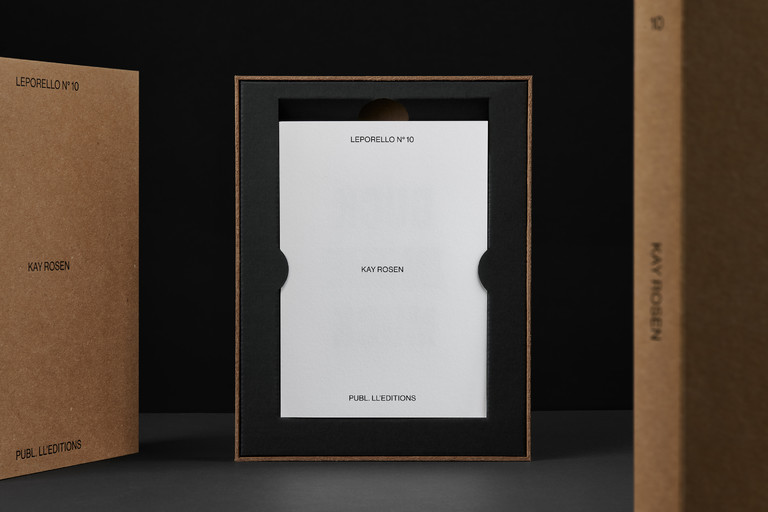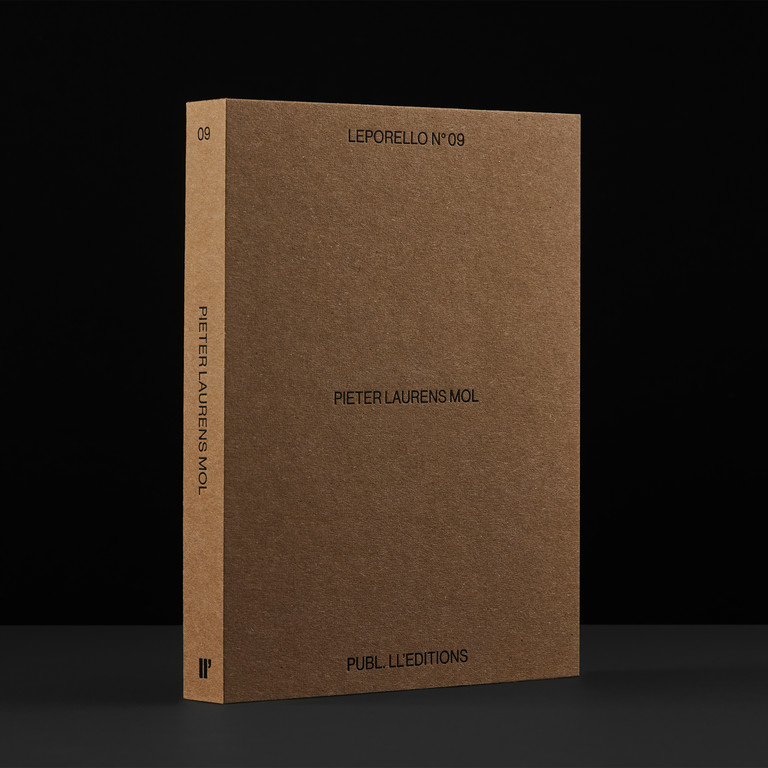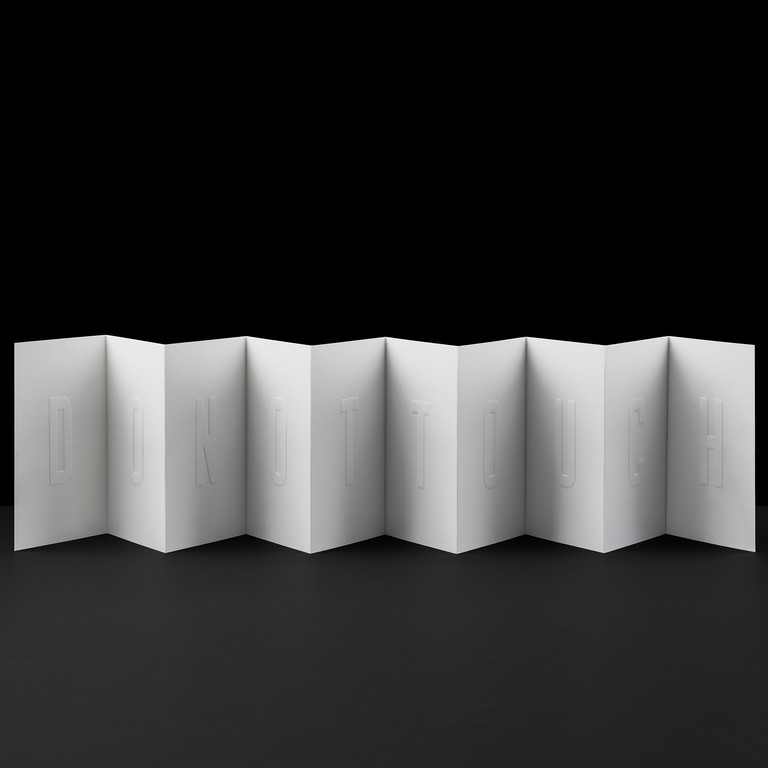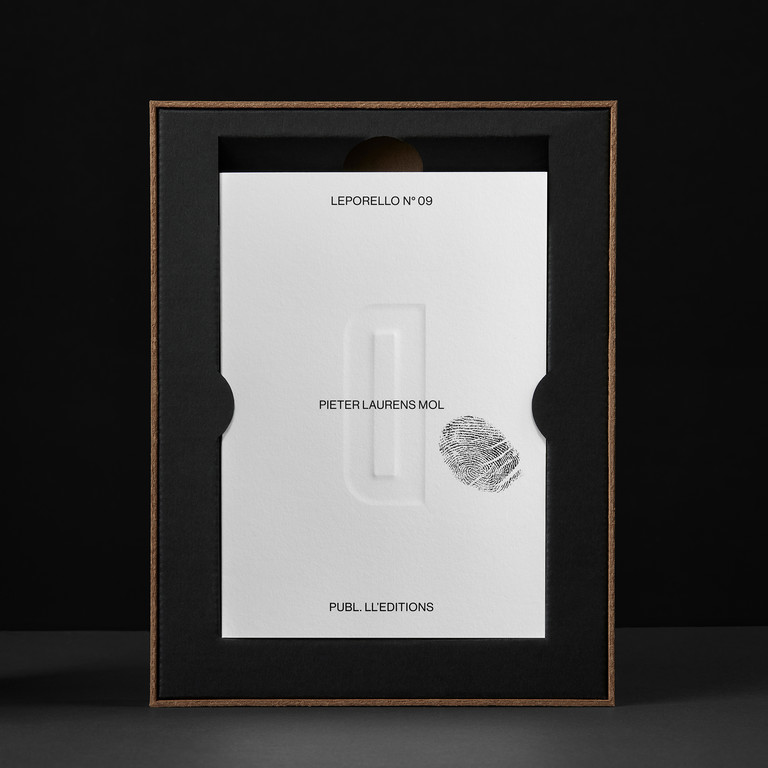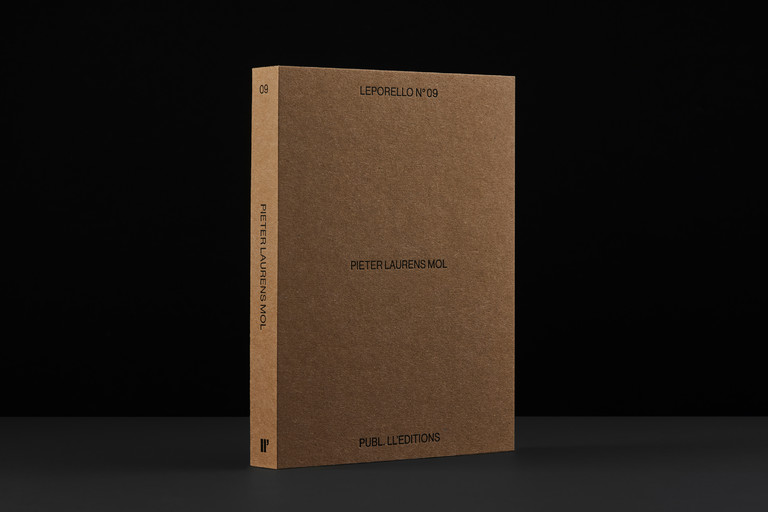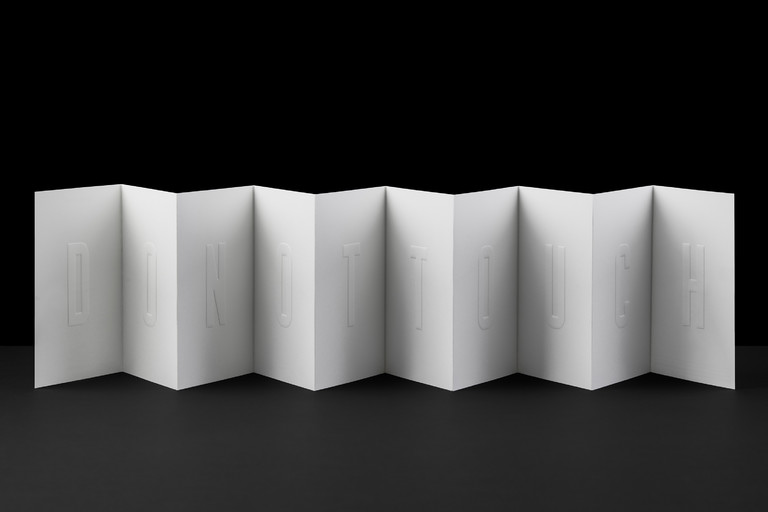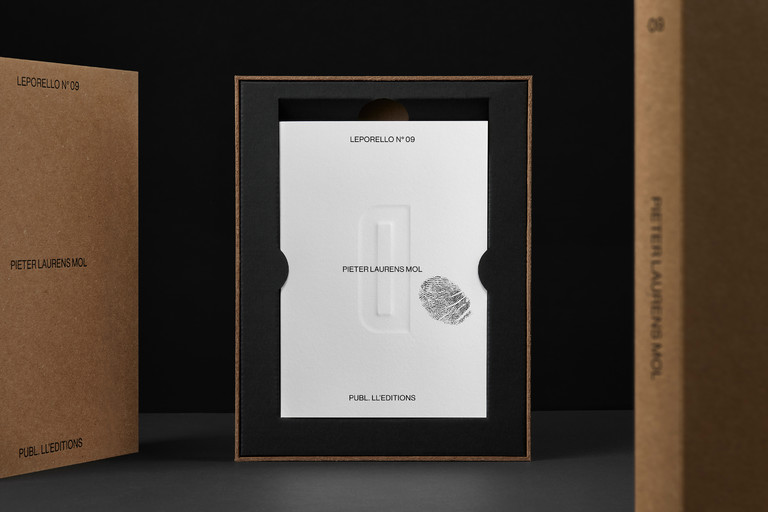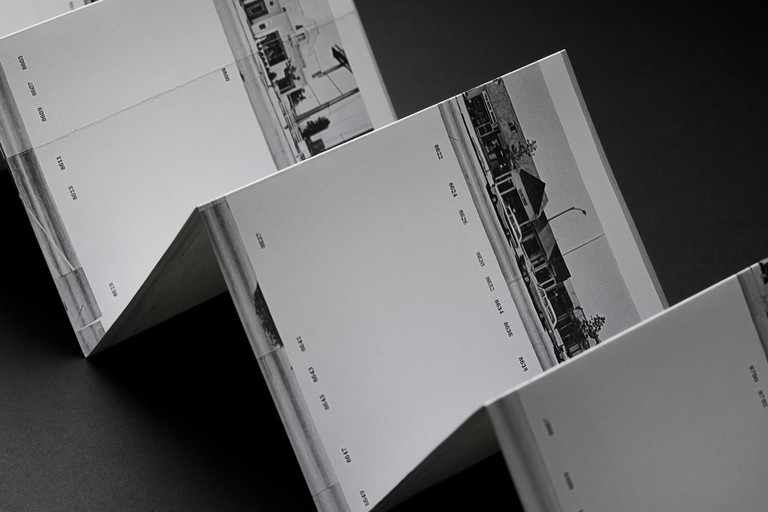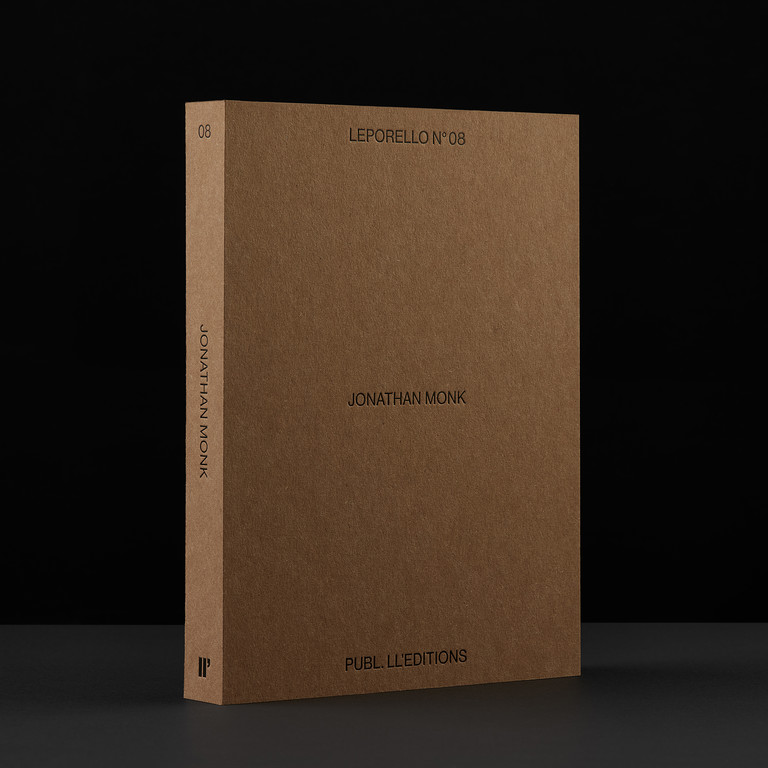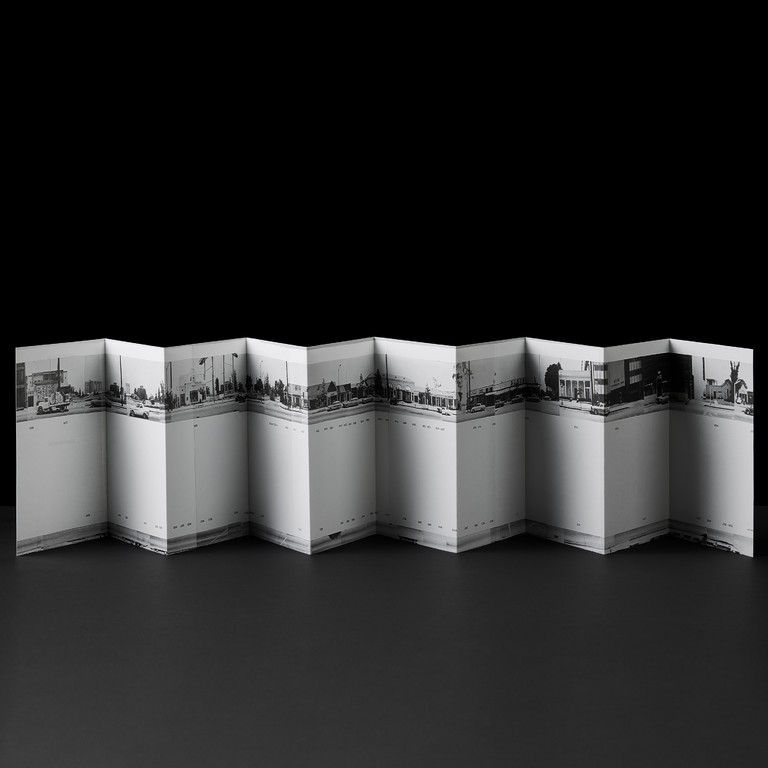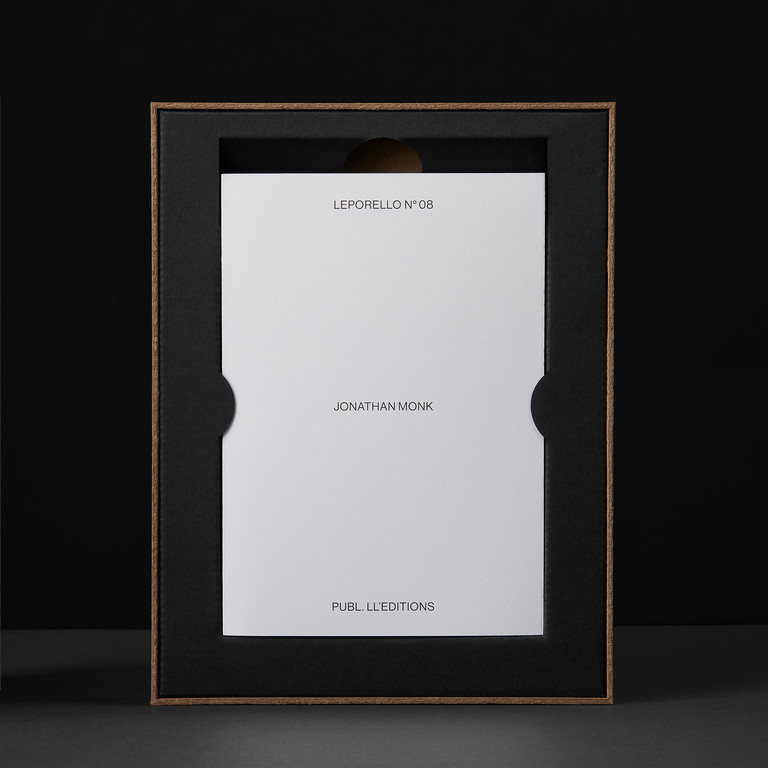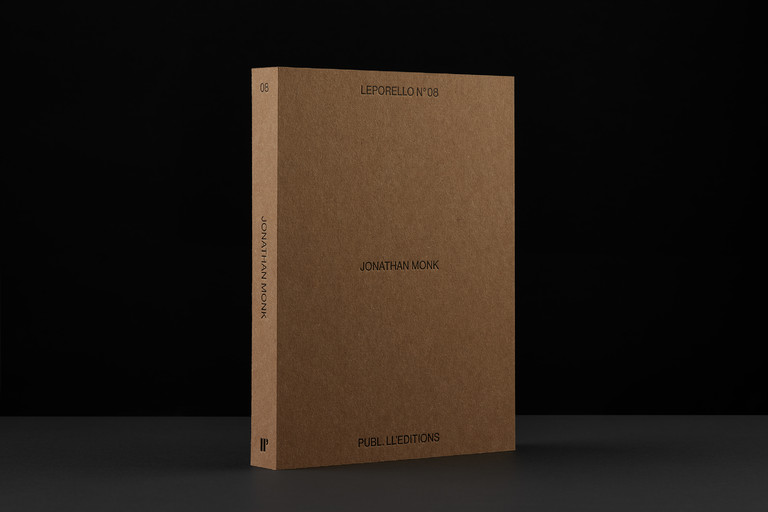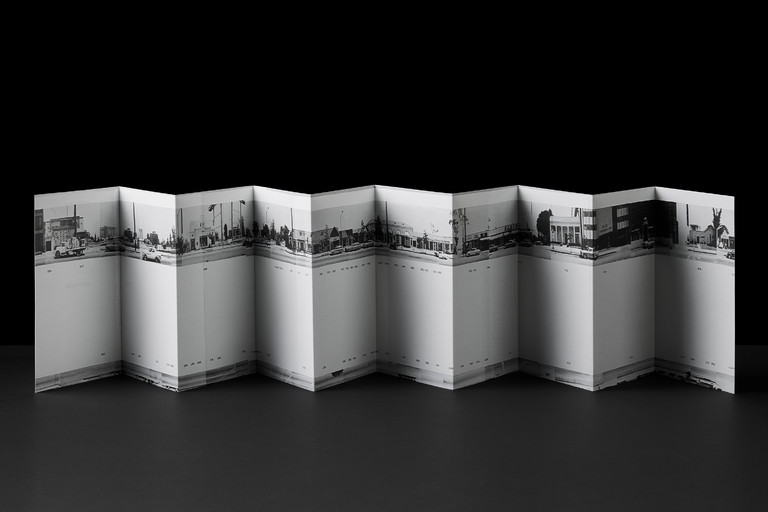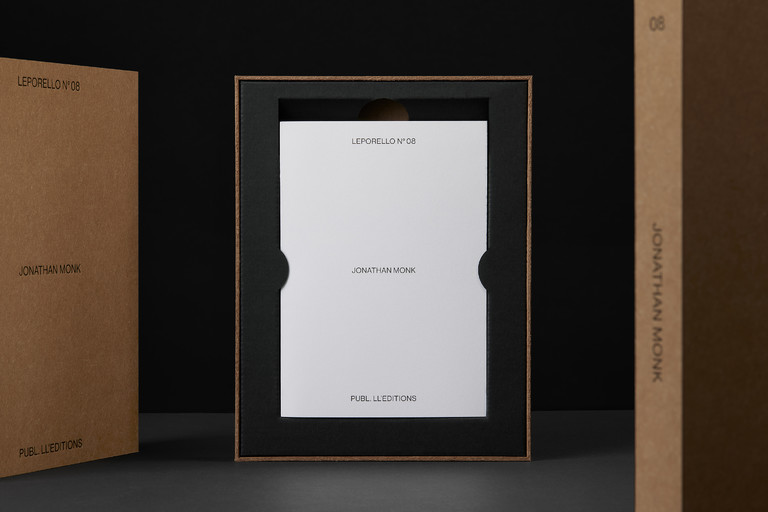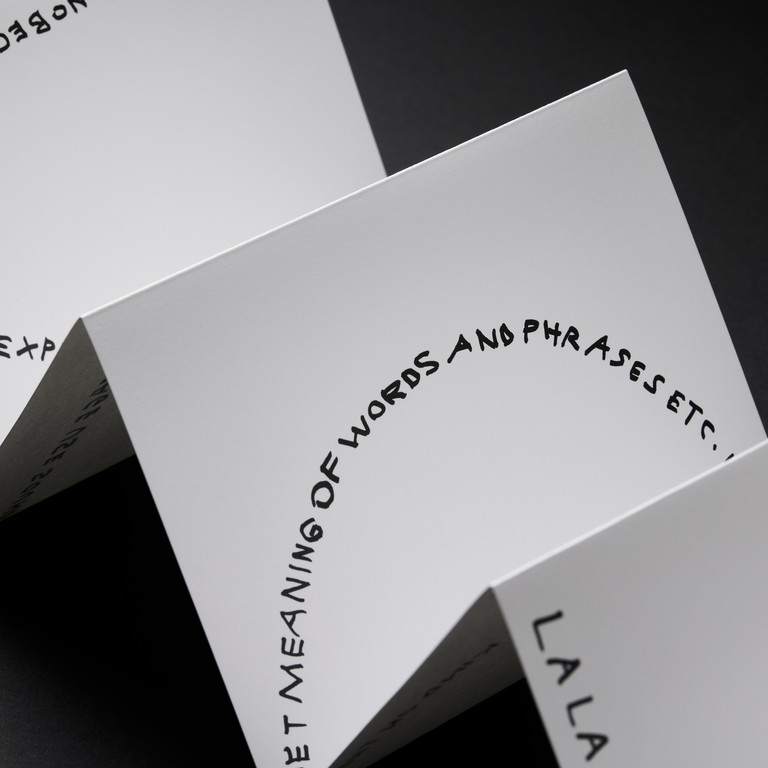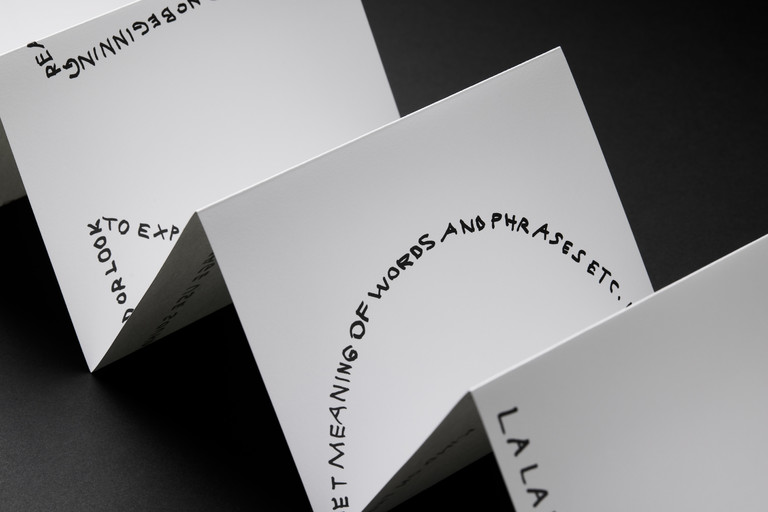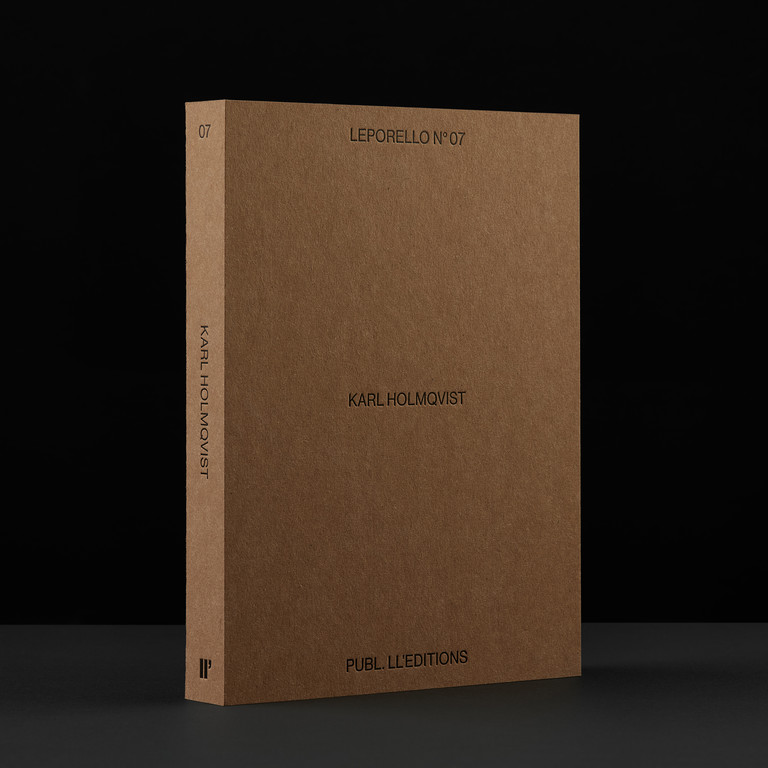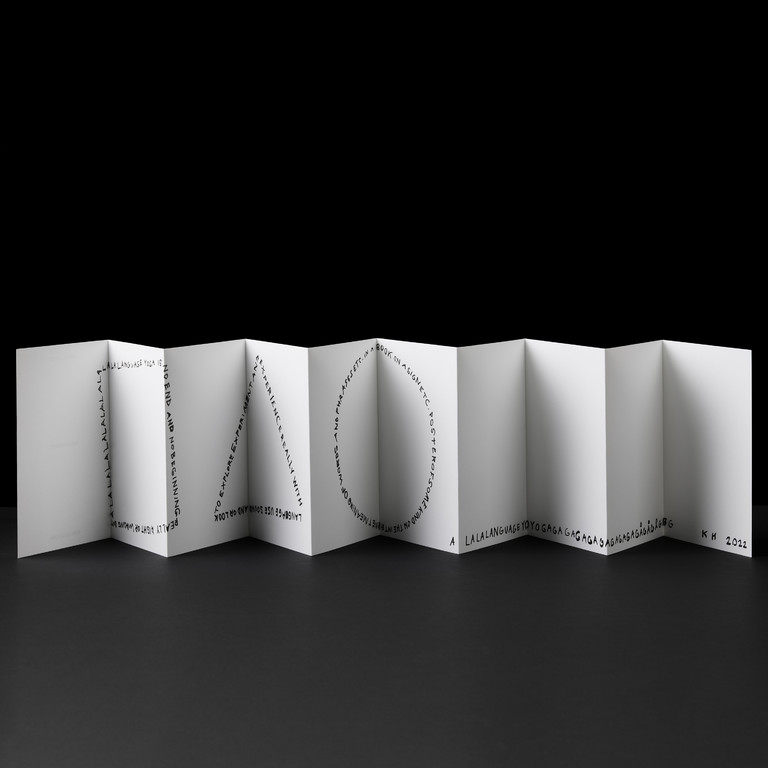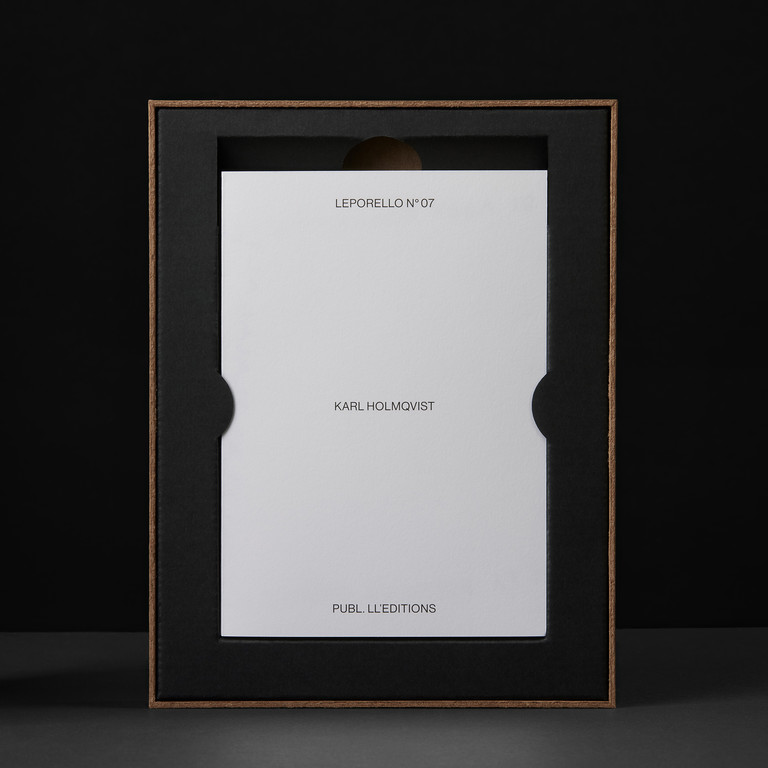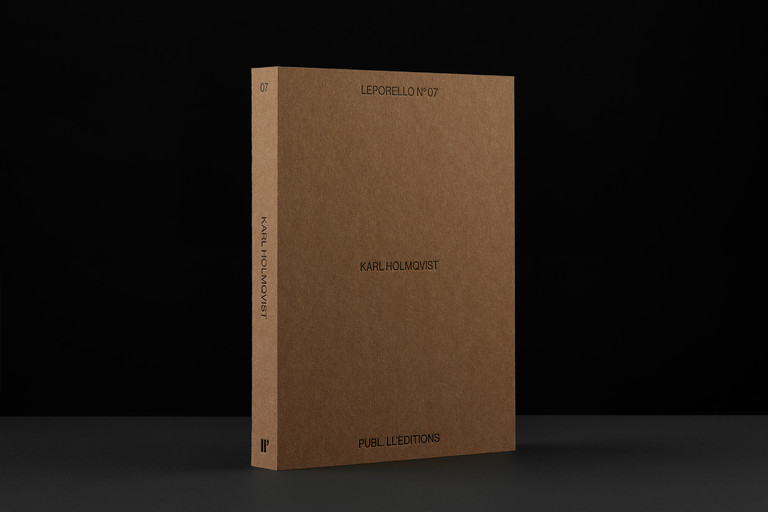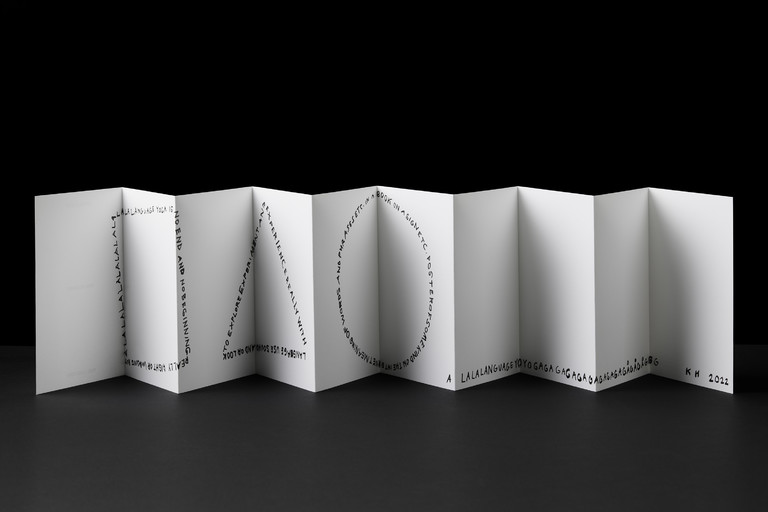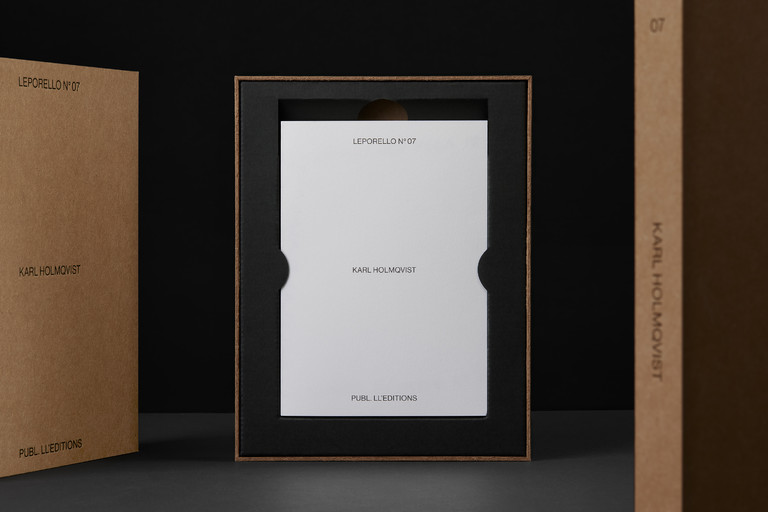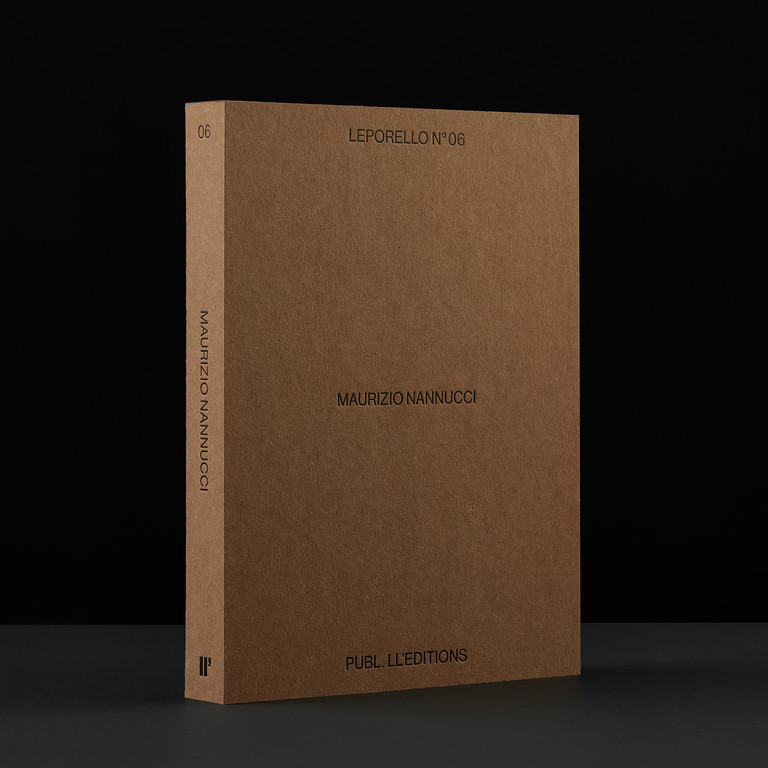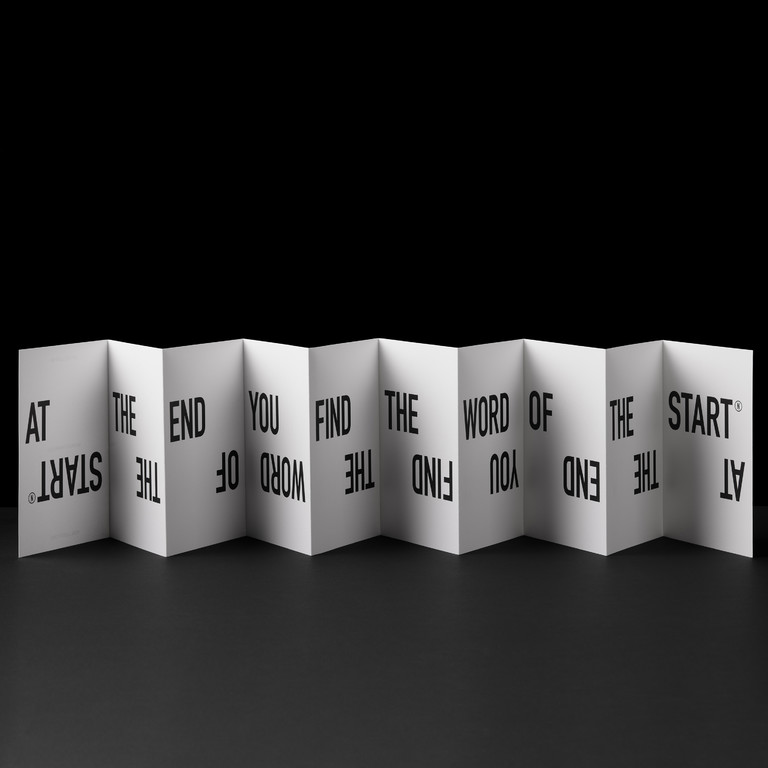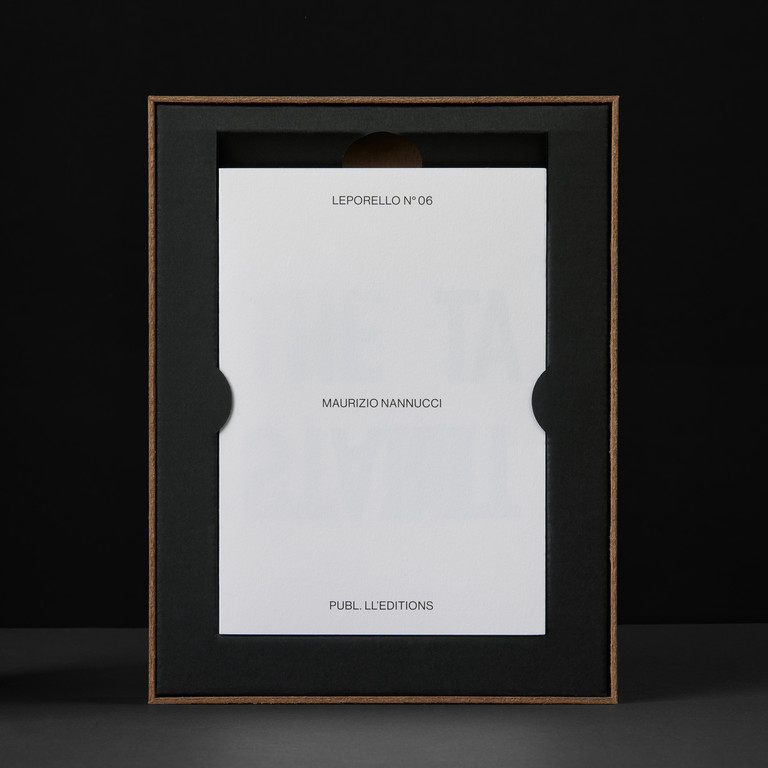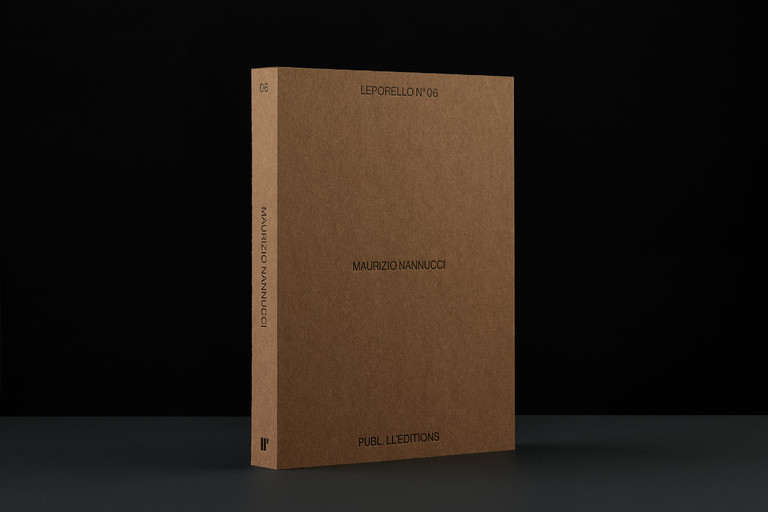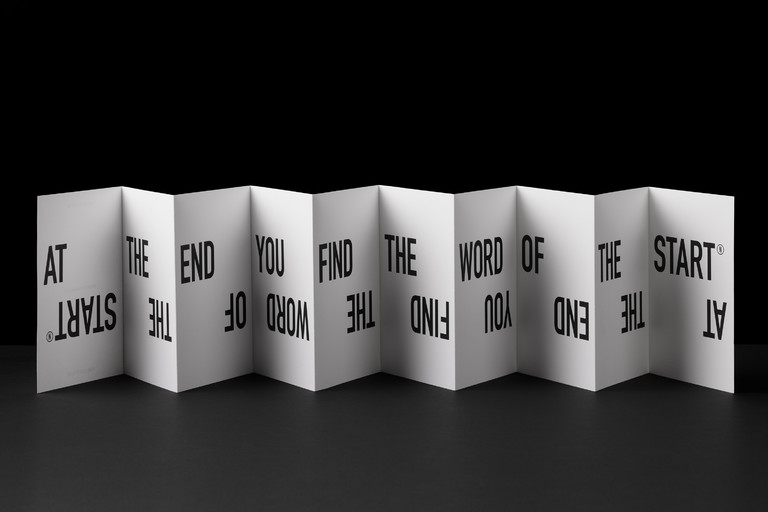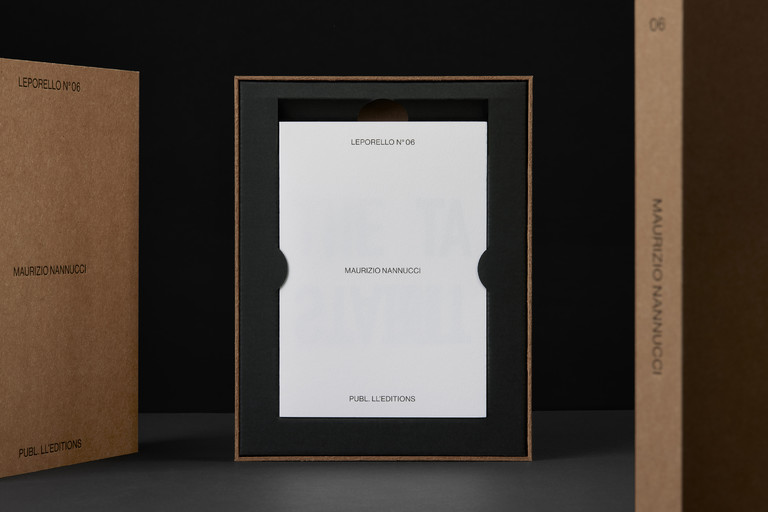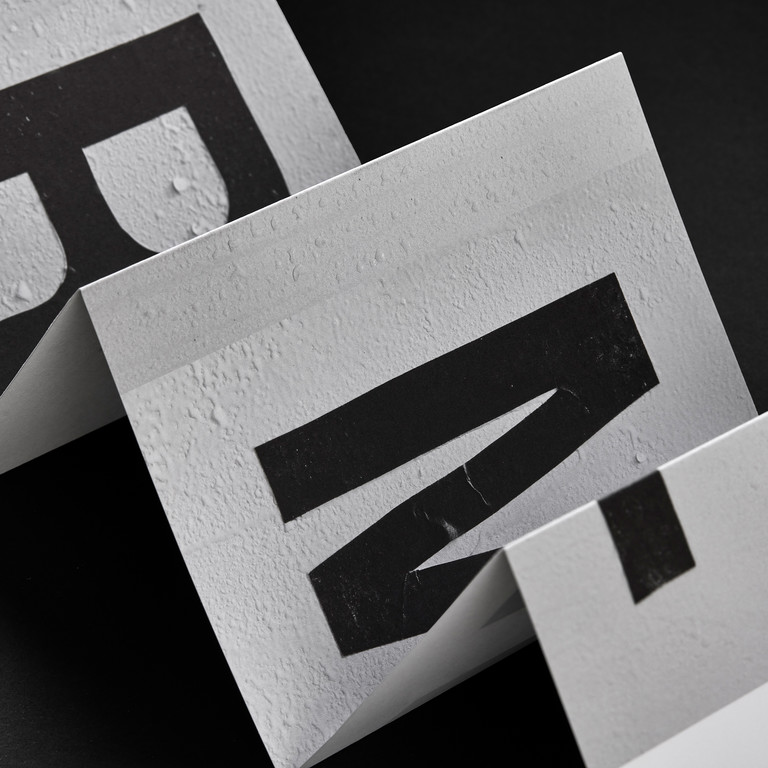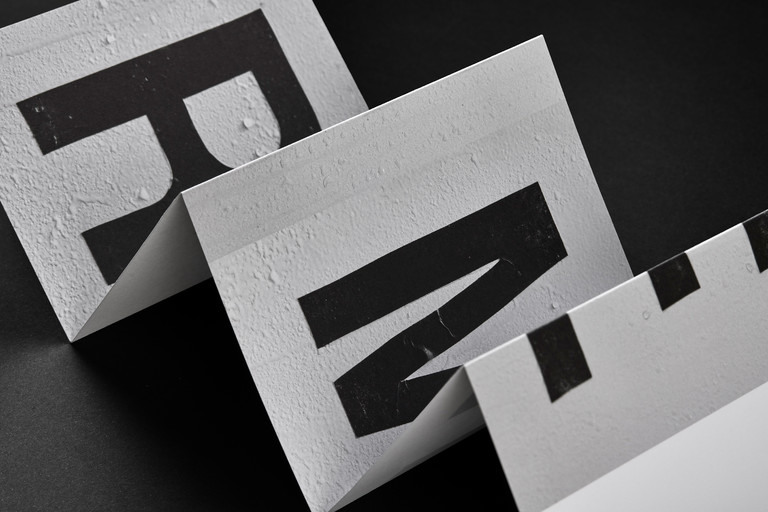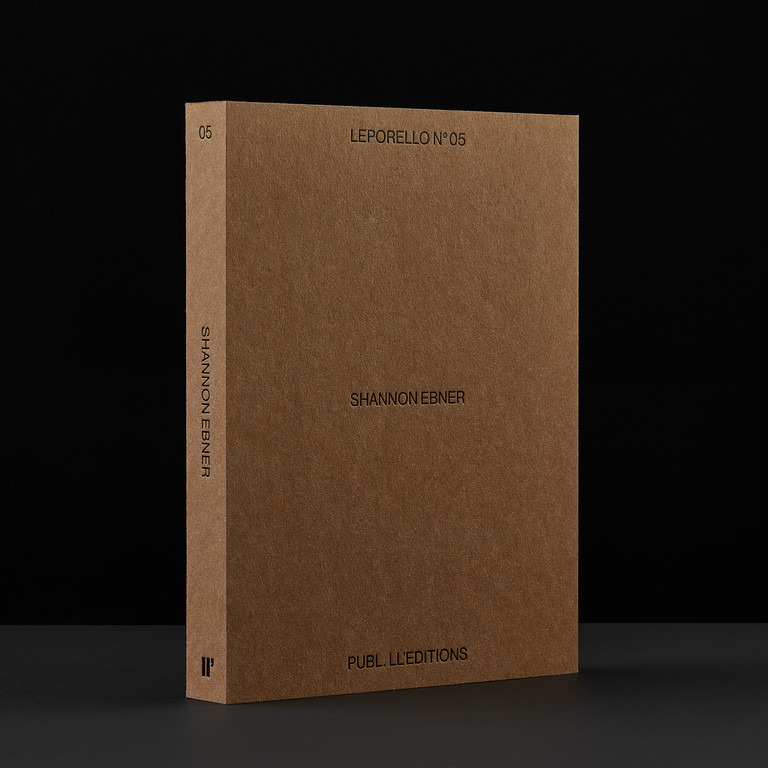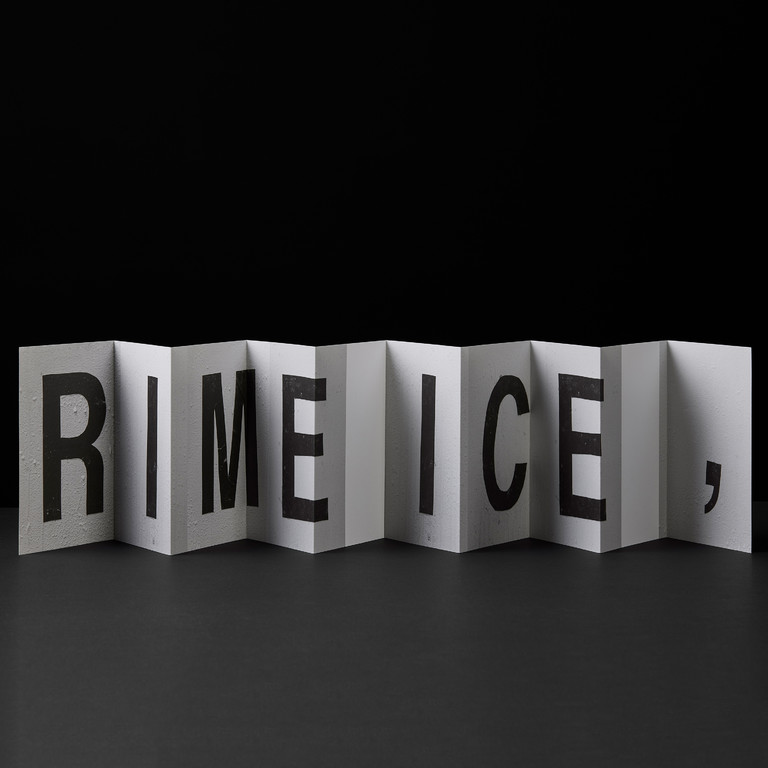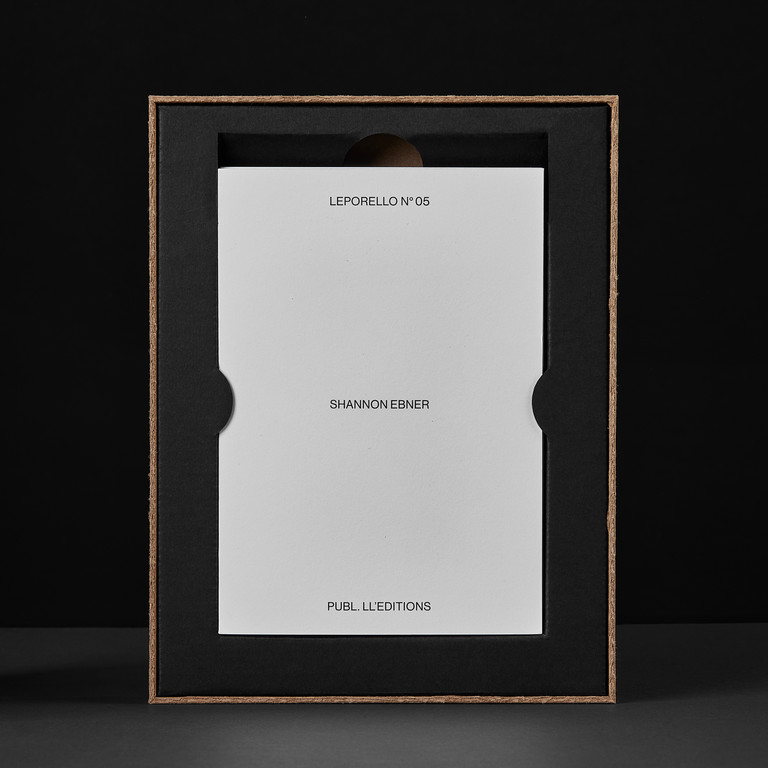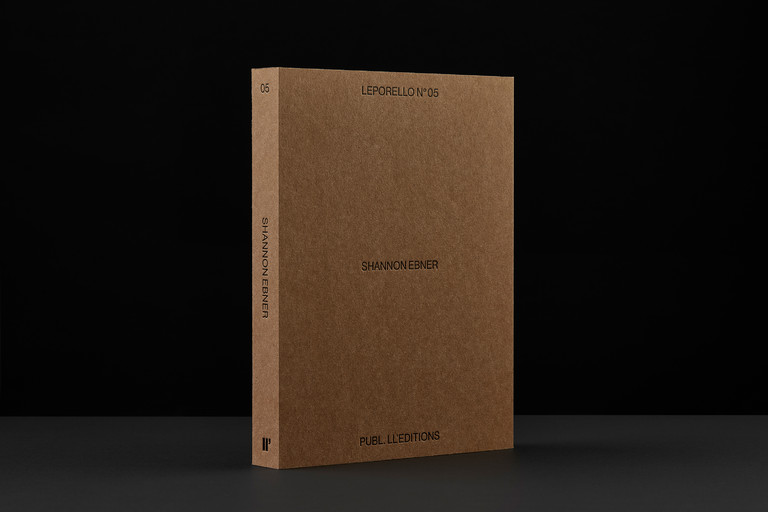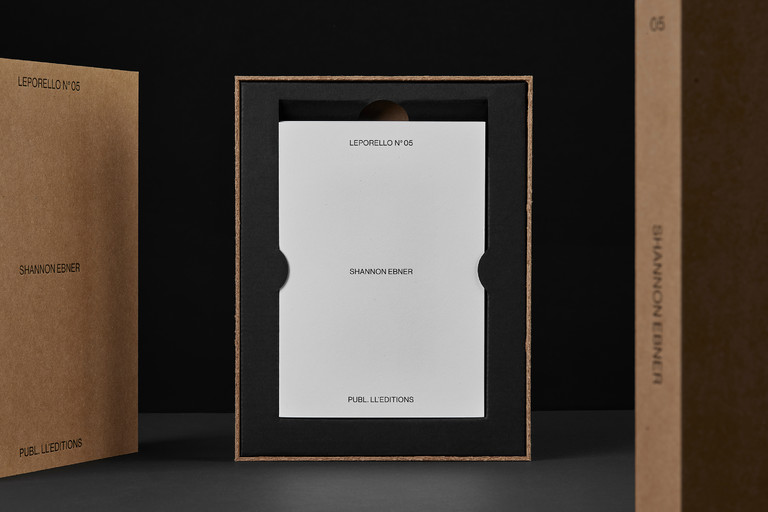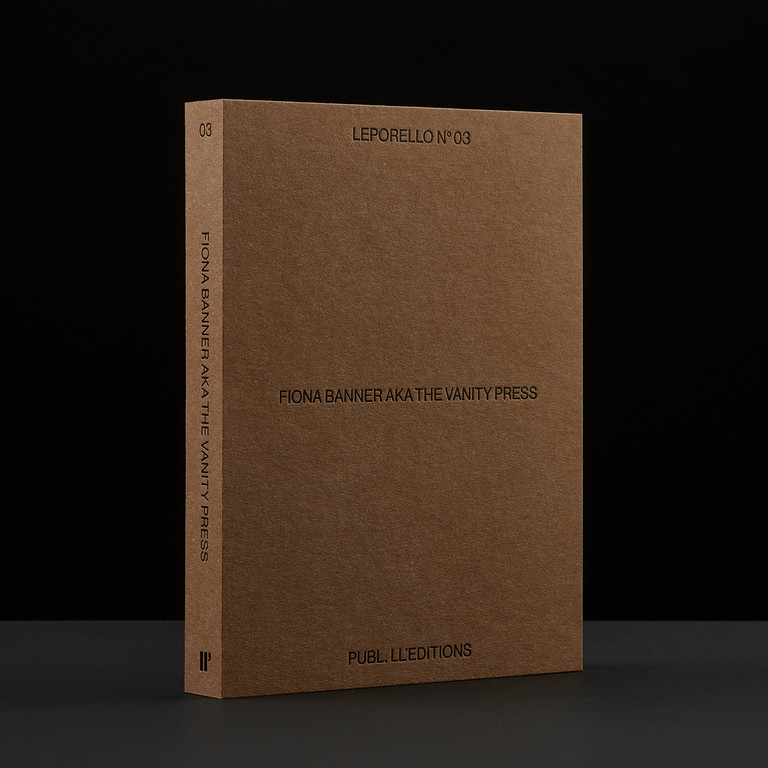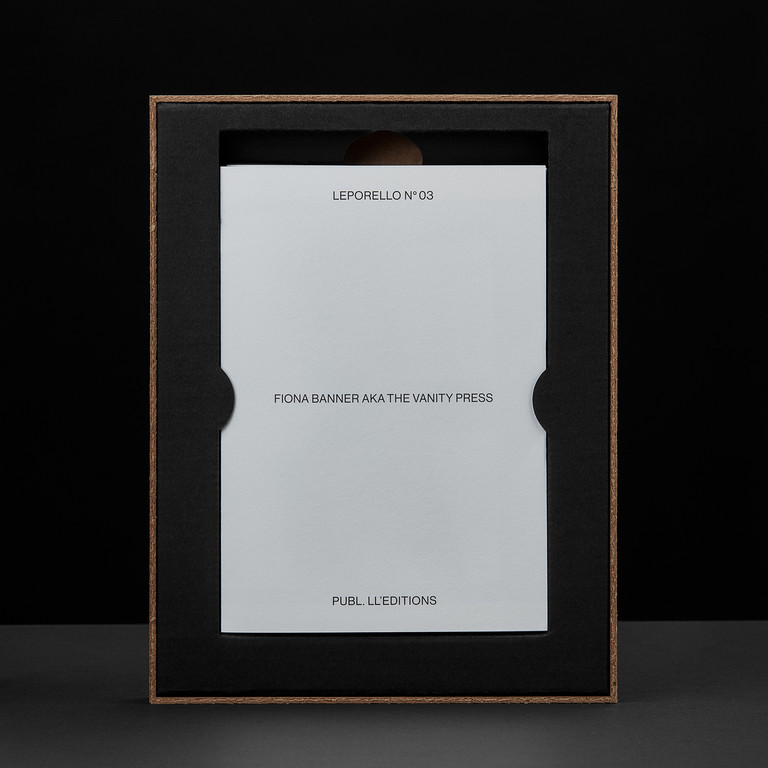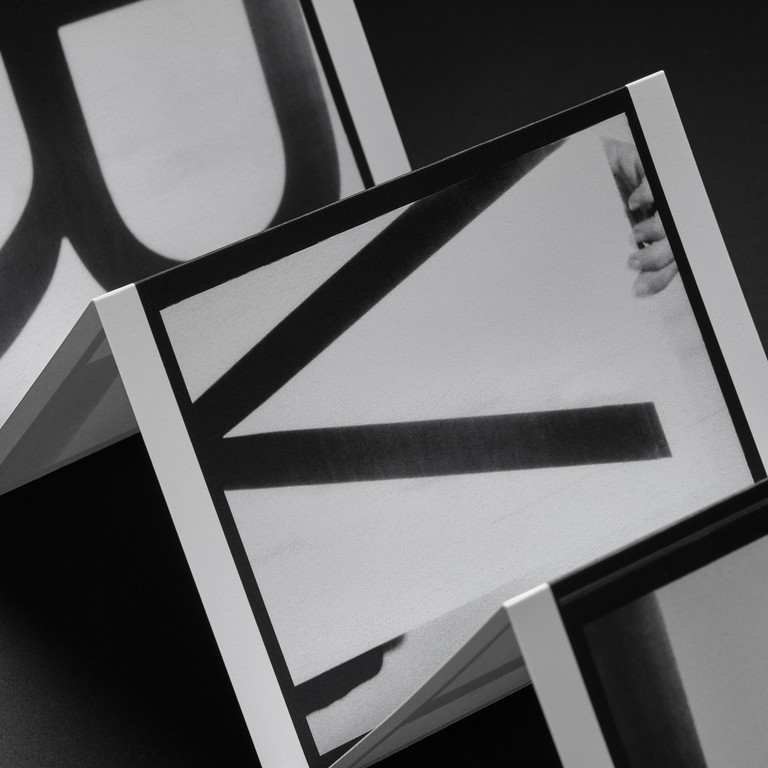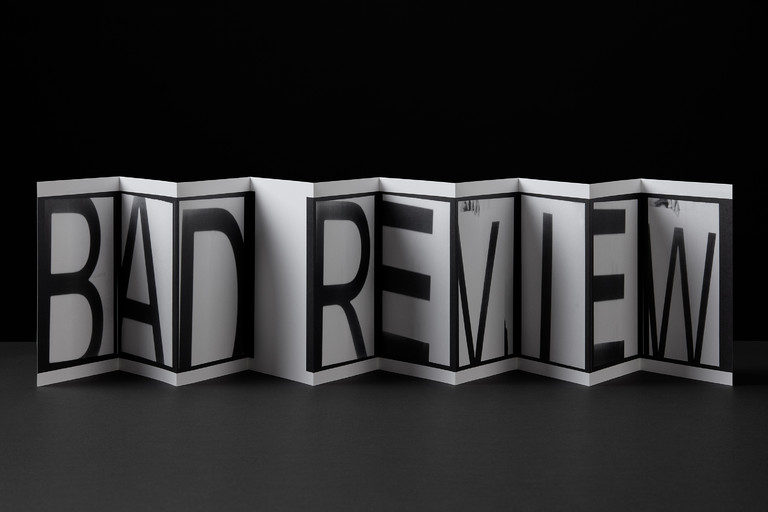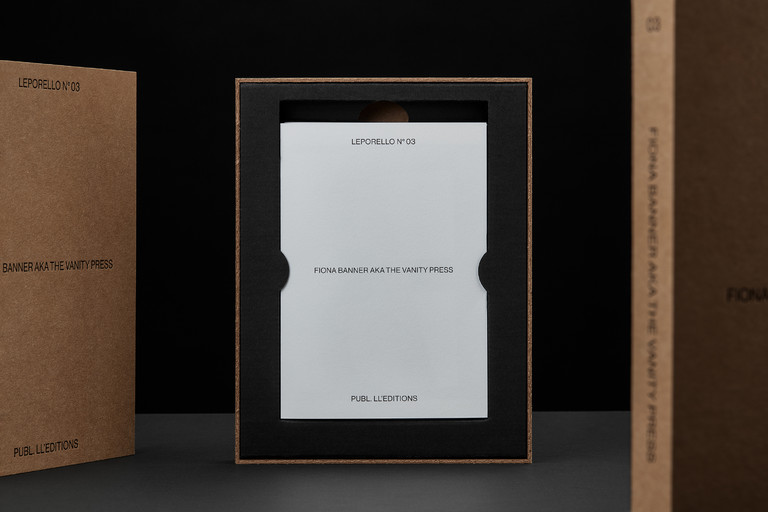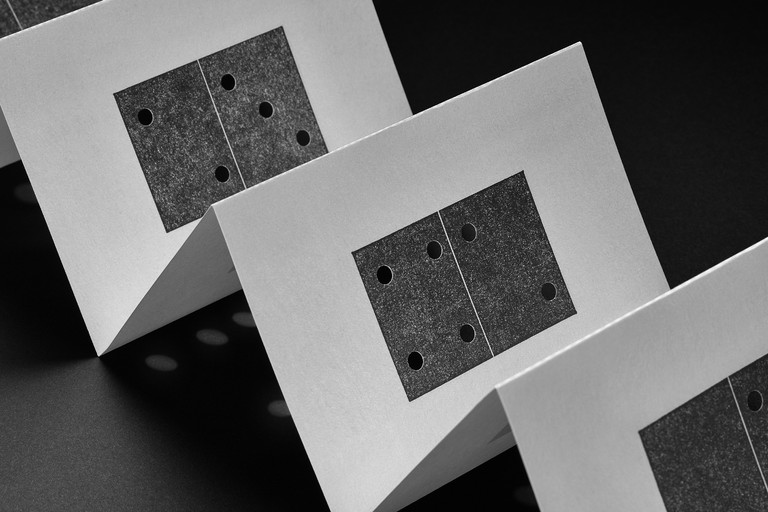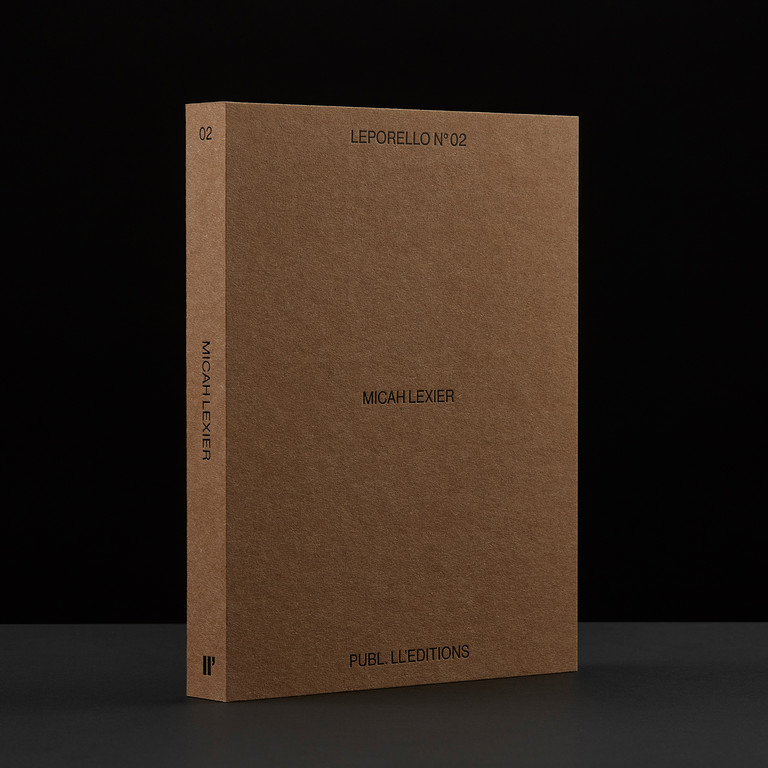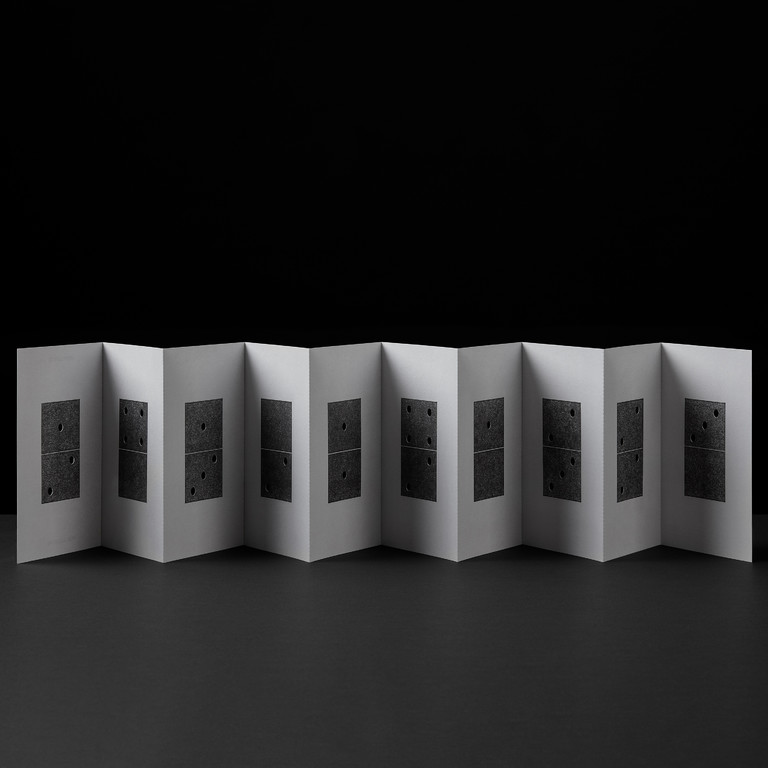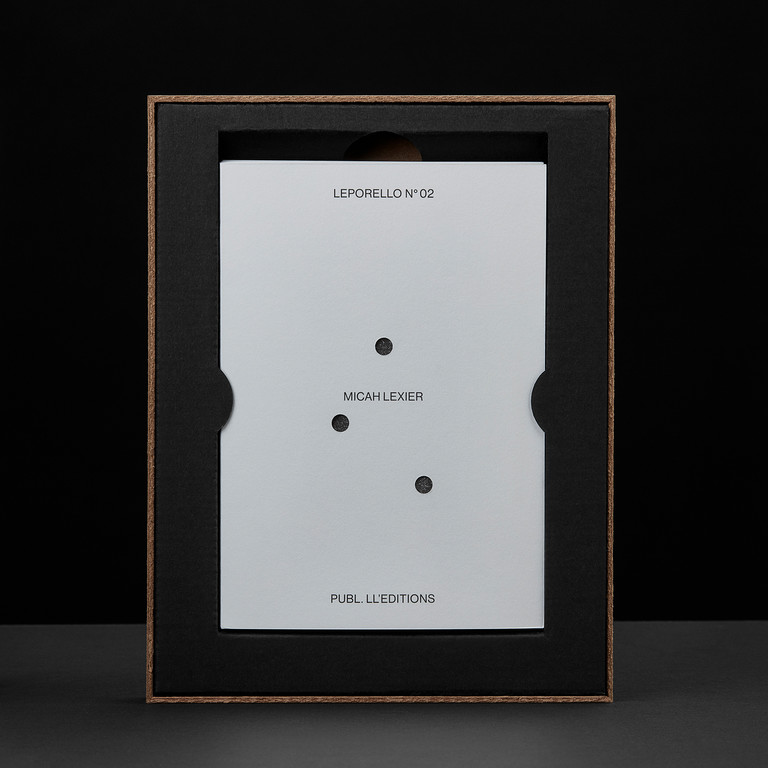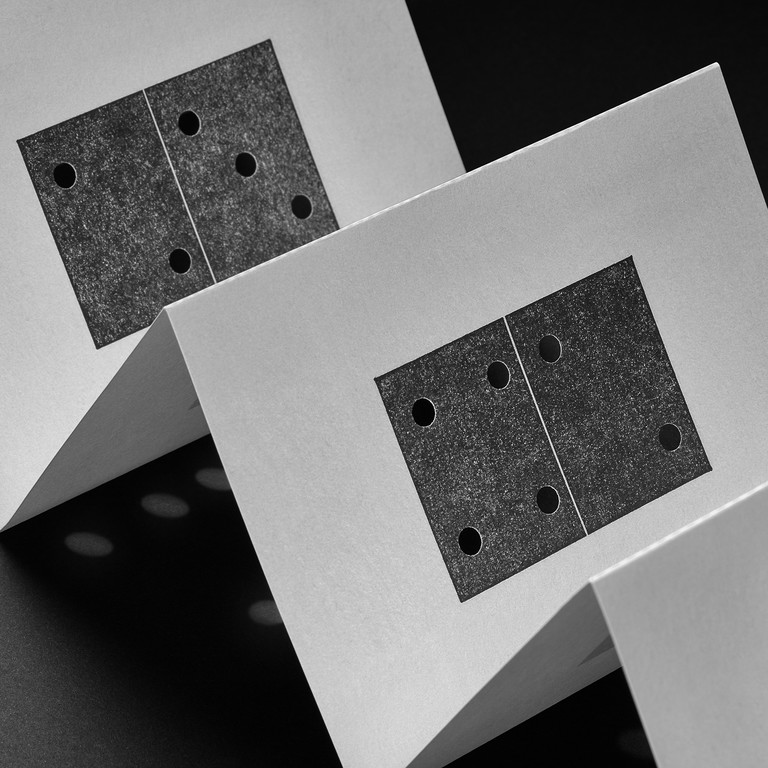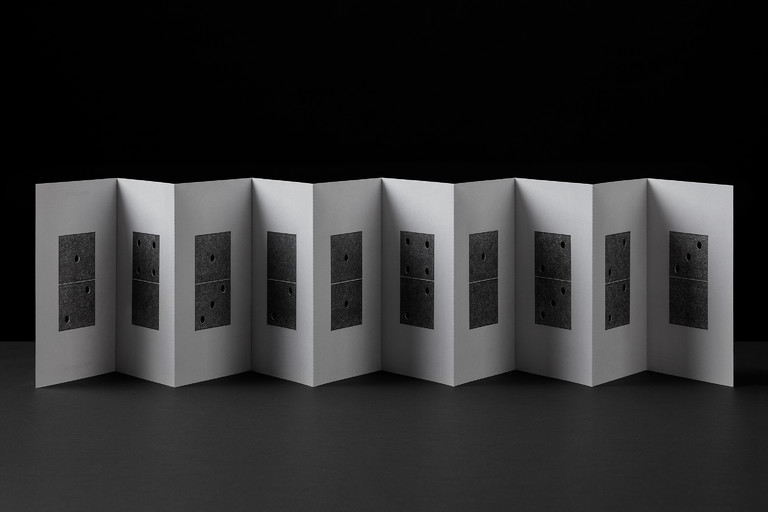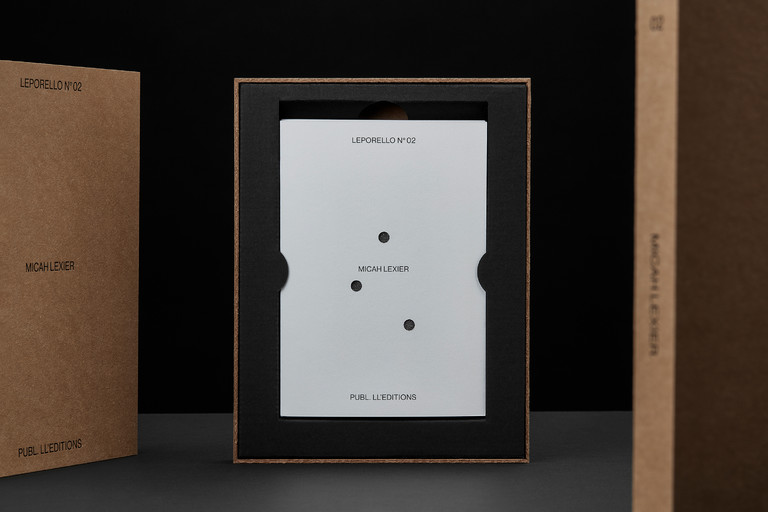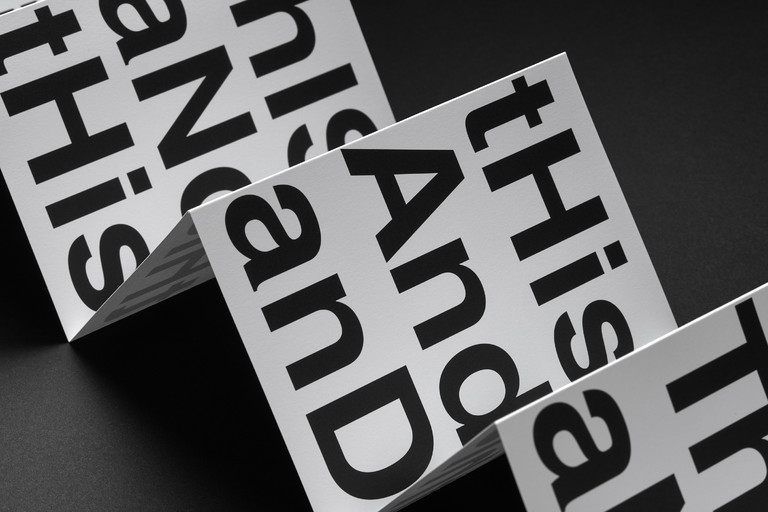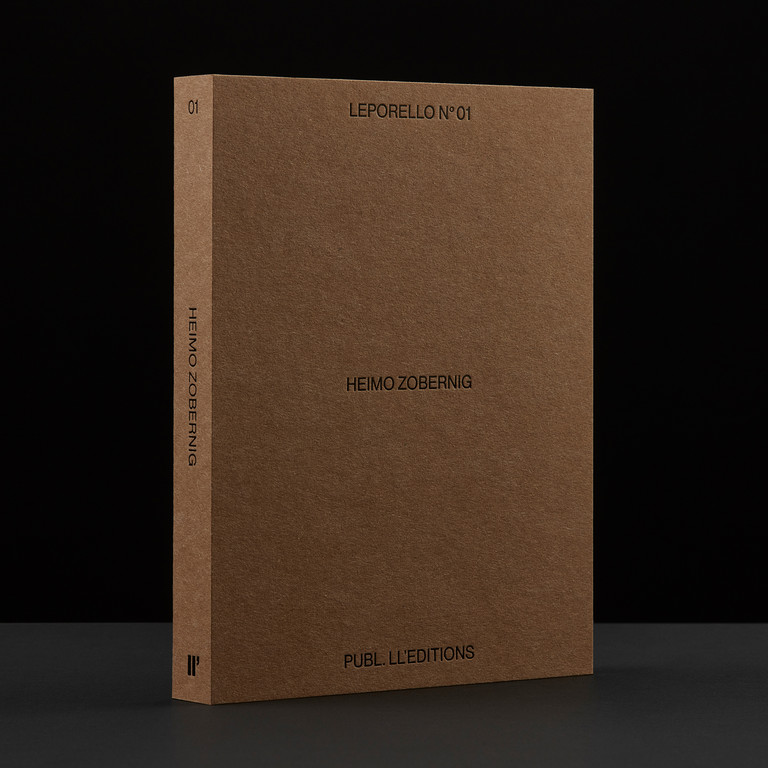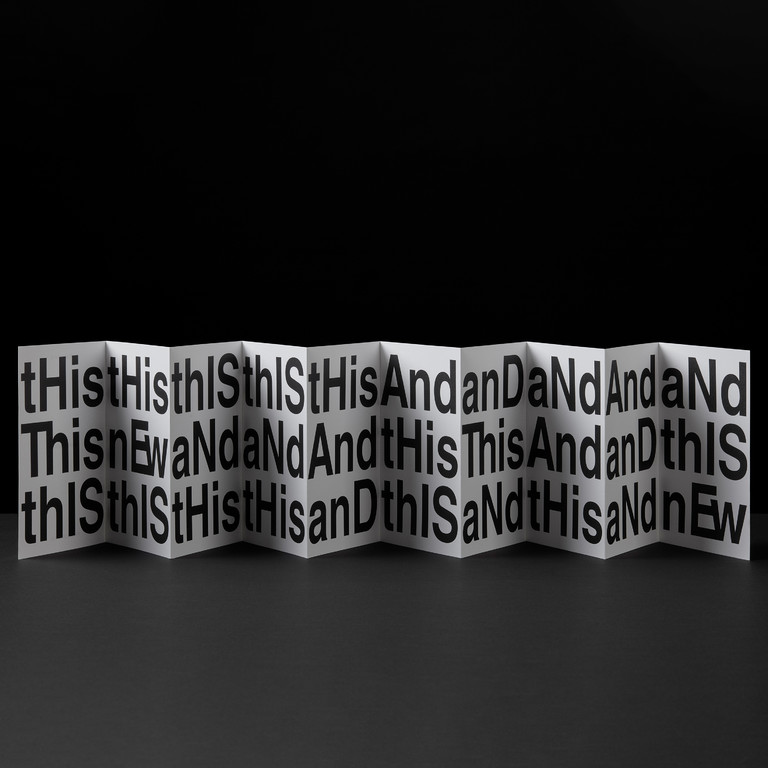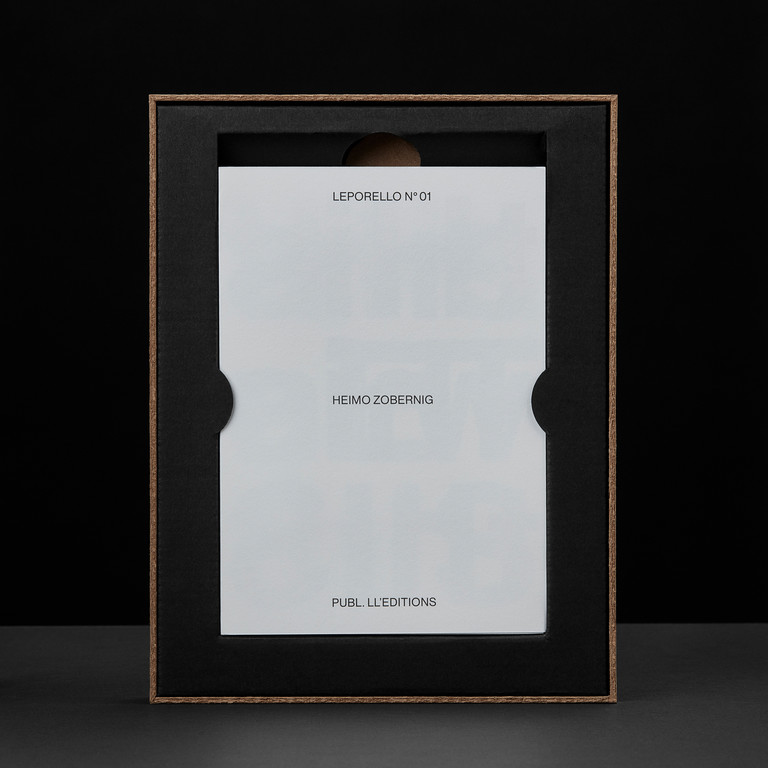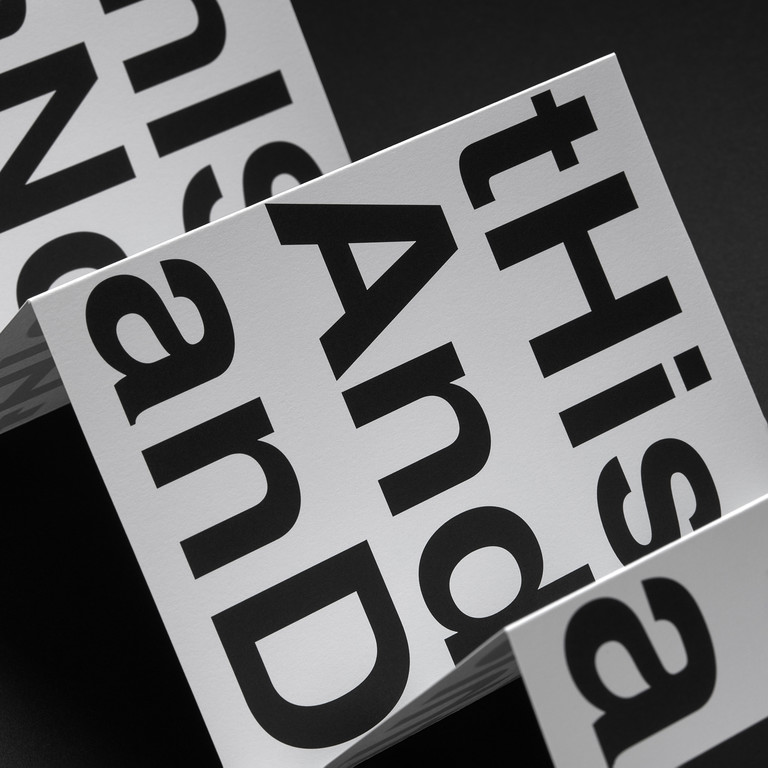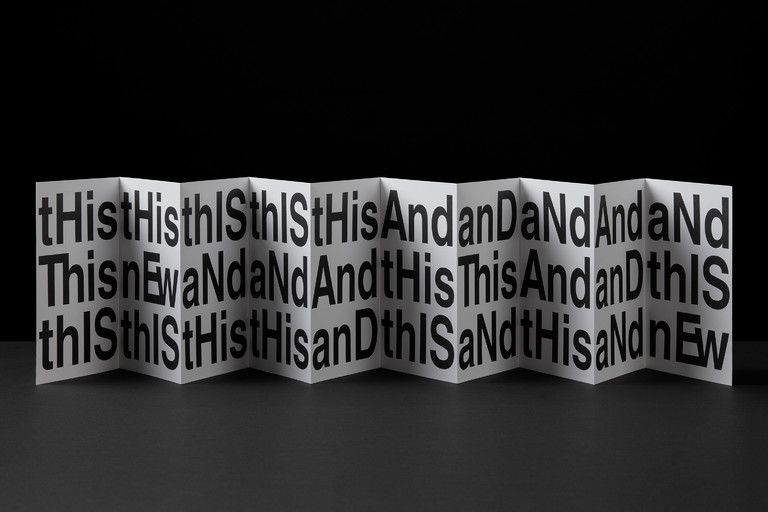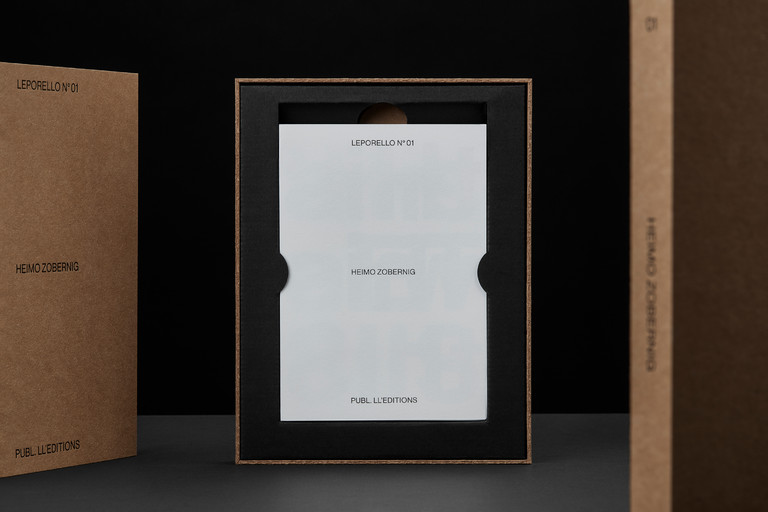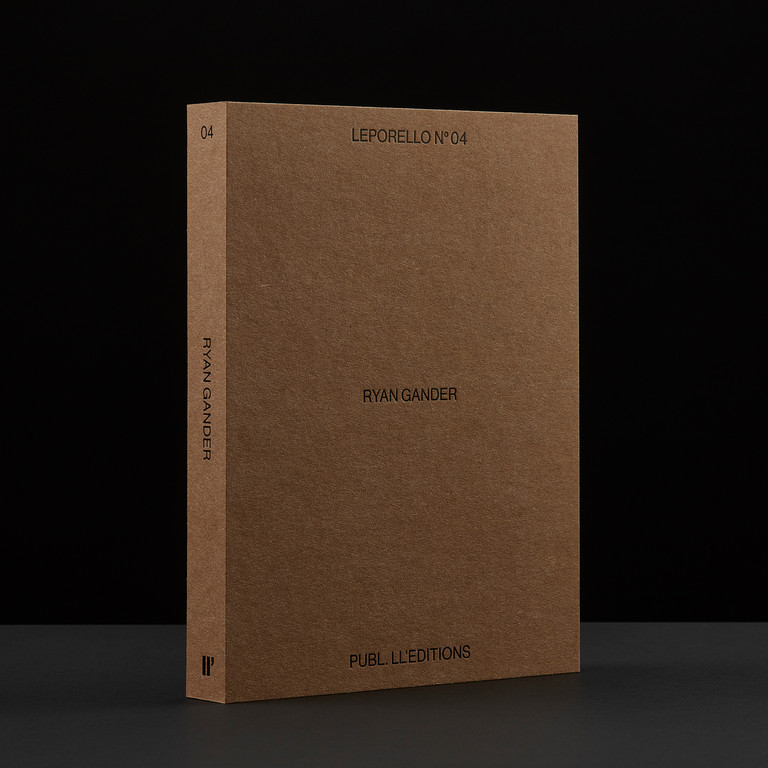
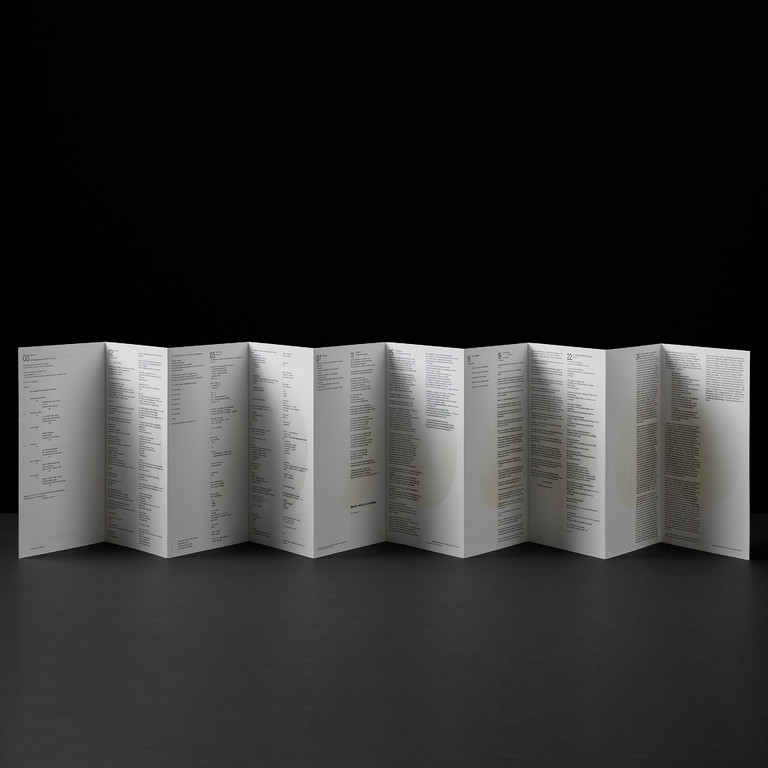
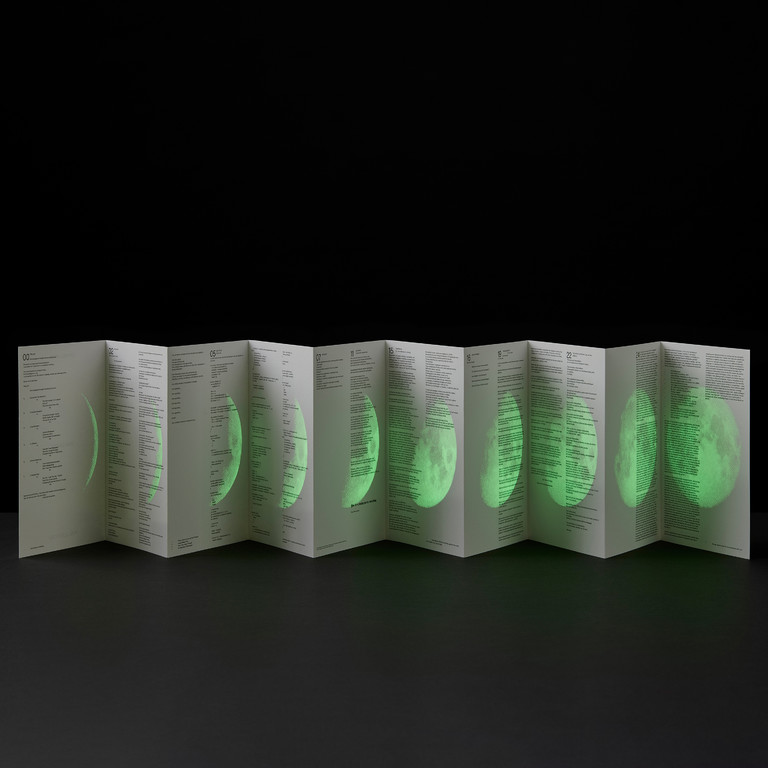
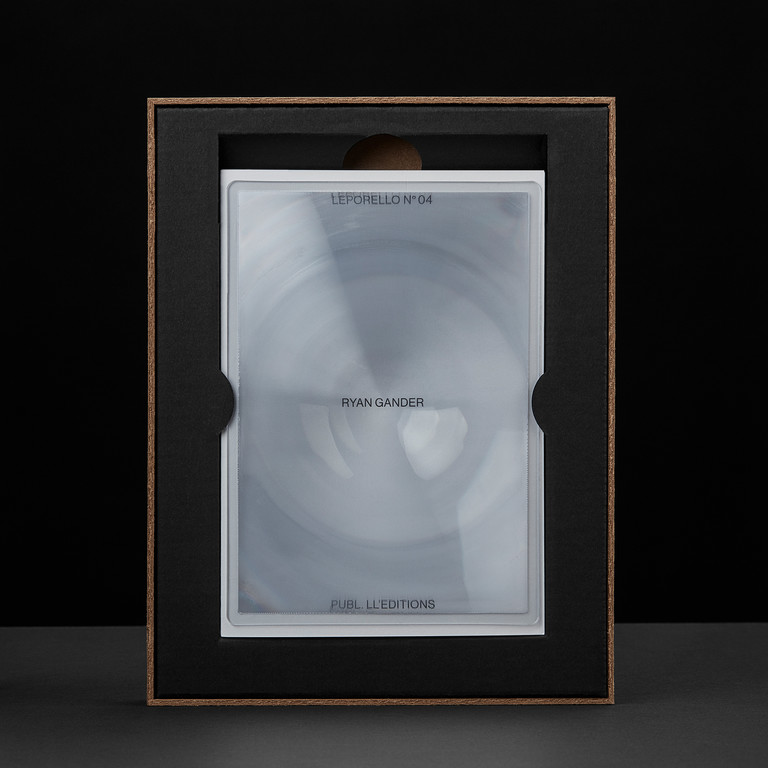
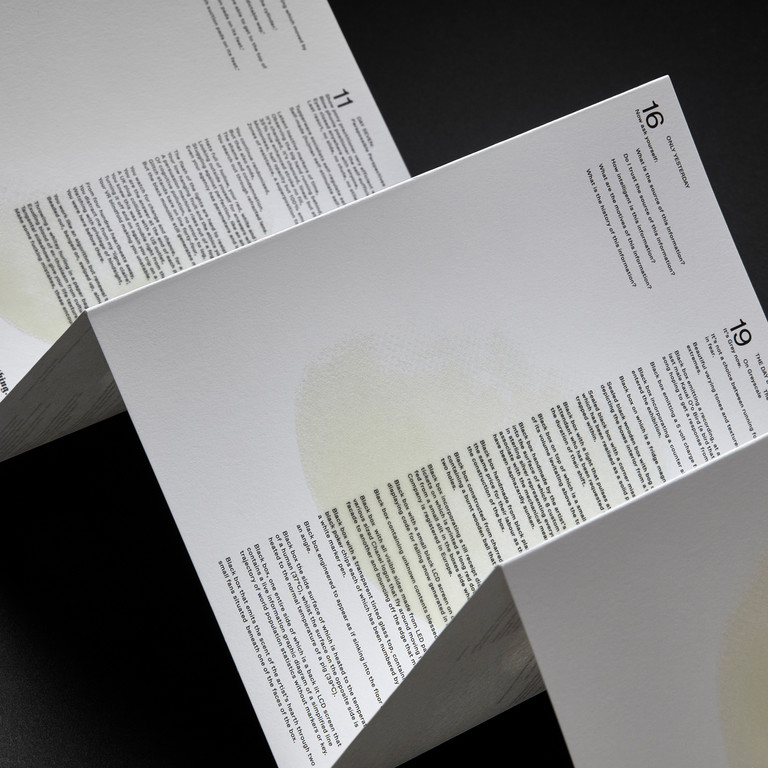
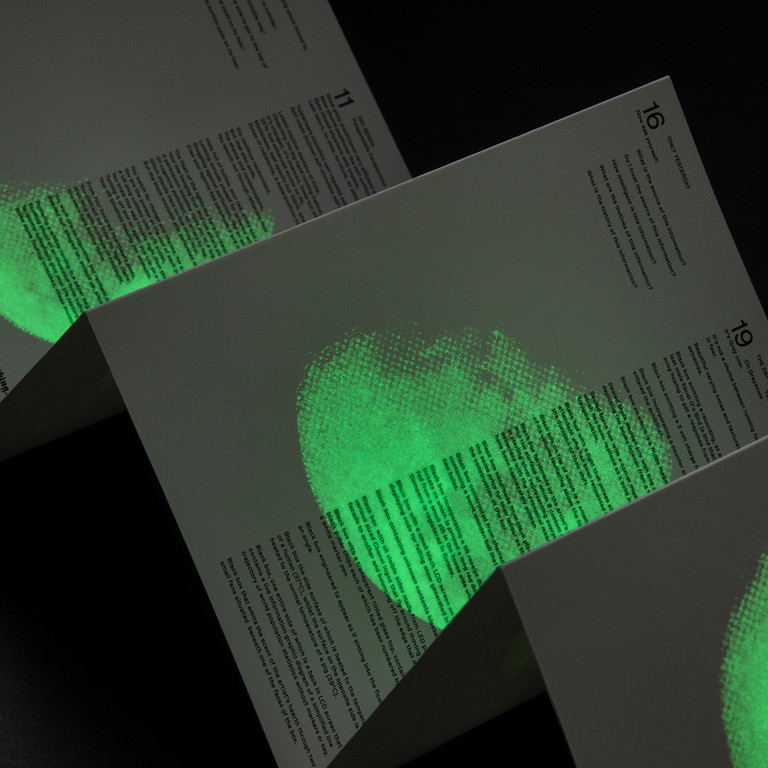
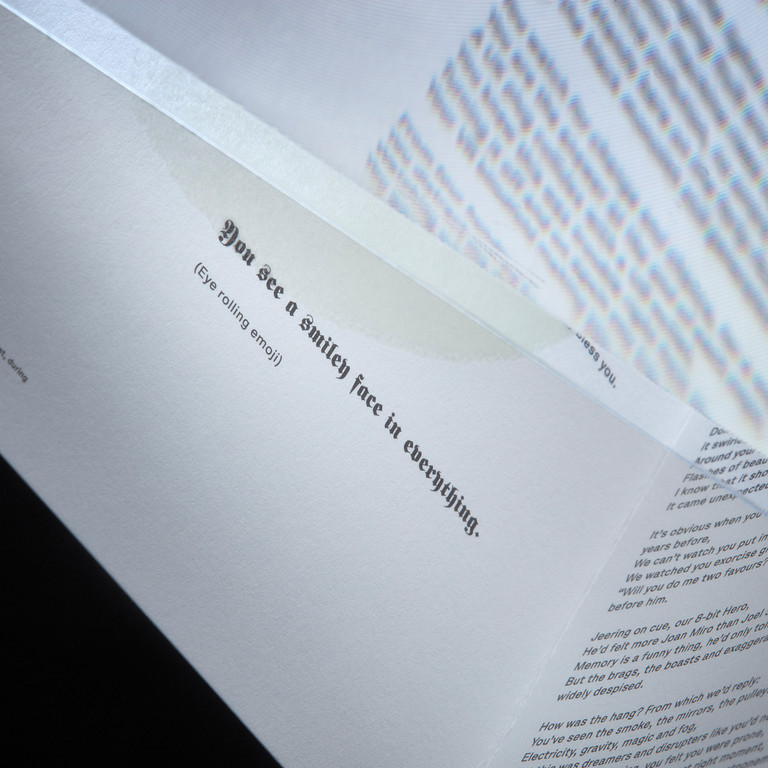
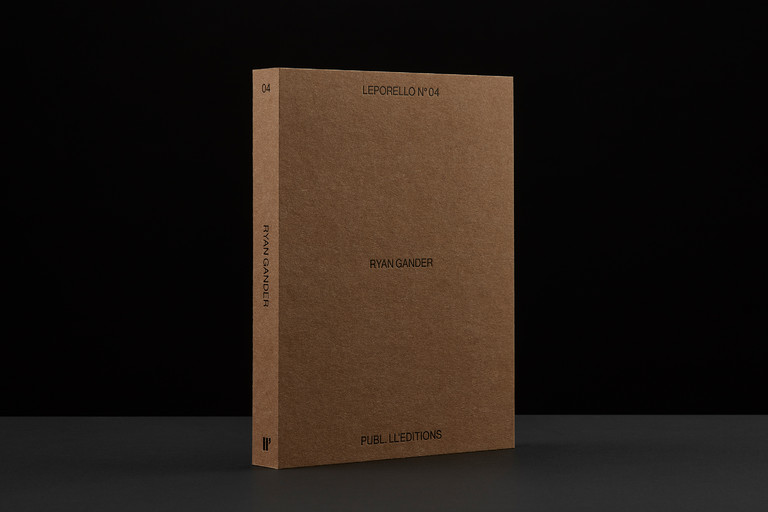
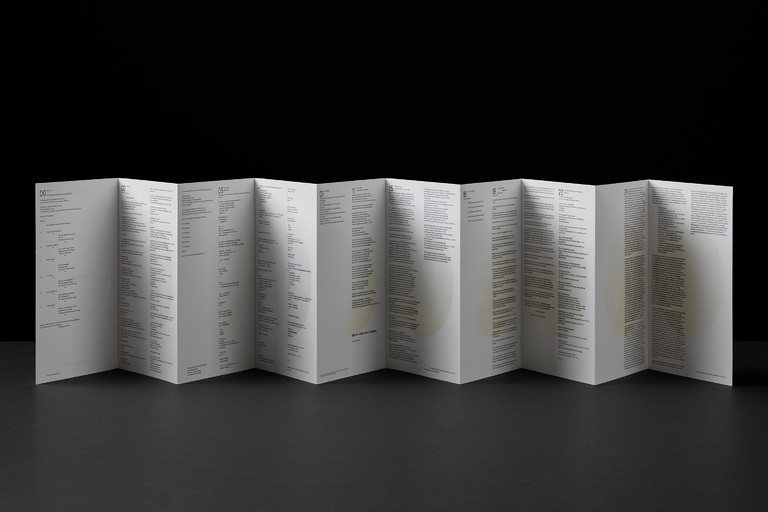
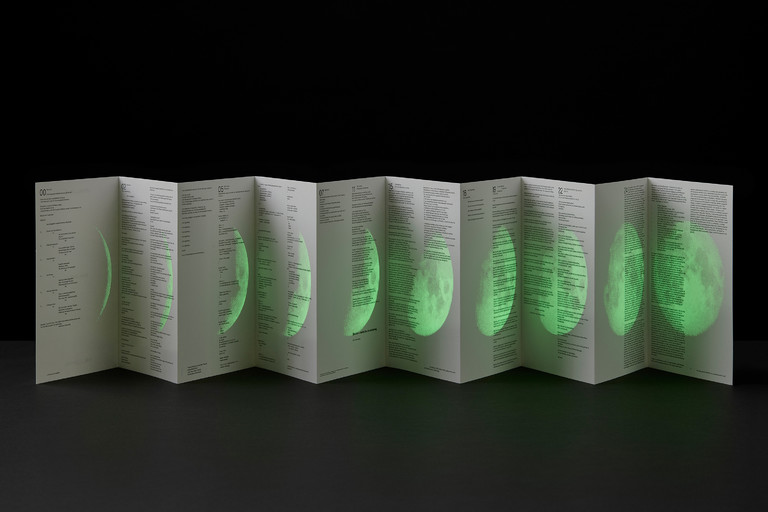
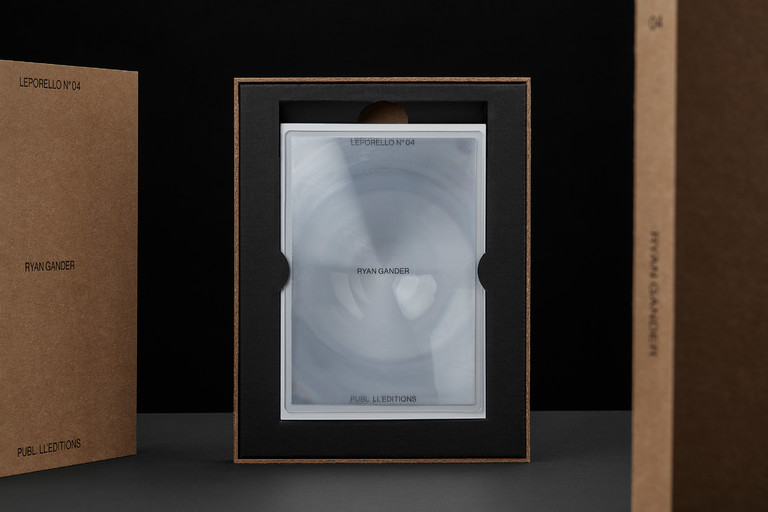
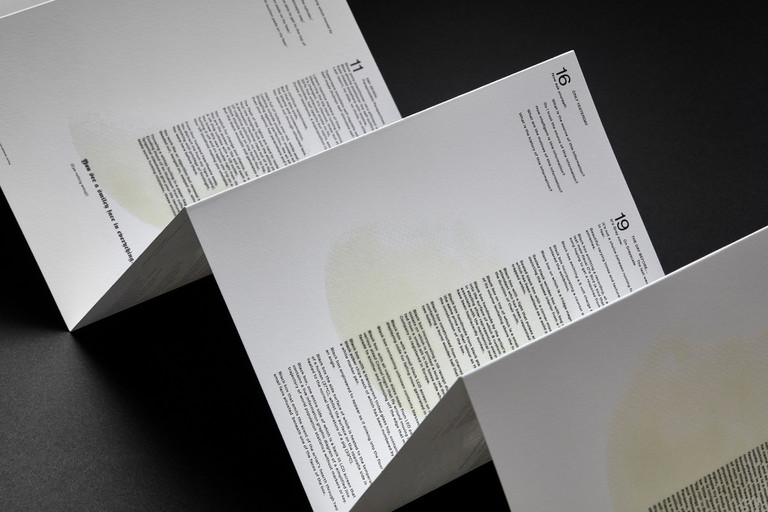
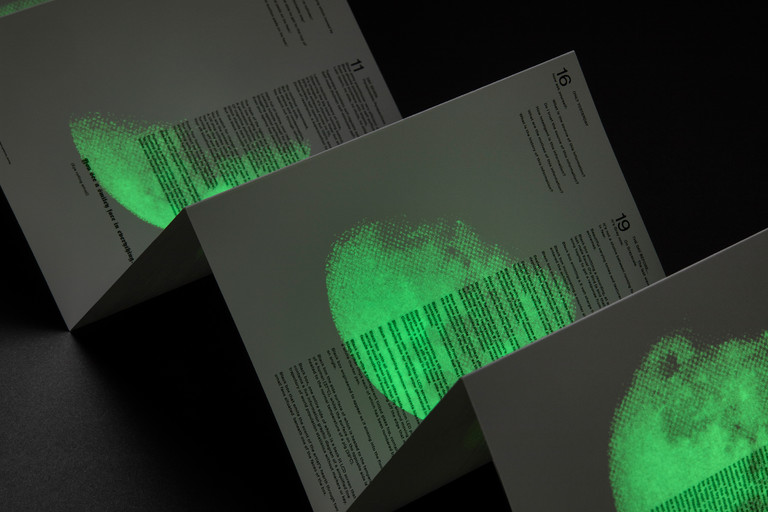
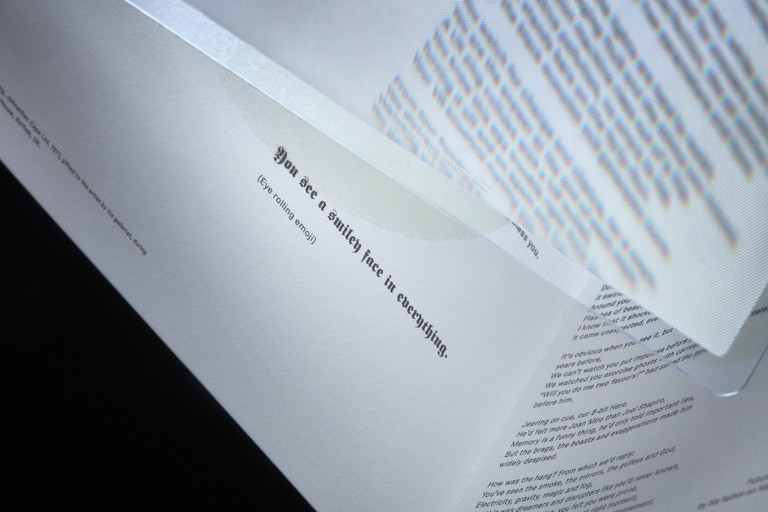
The narrative is not completely linear. Or perhaps it can be? Ryan Gander’s Leporello N° 04 presents excerpts of his digital word compositions displayed as part of the 2020 work Staccato Refractions. Presented as concrete poetry, the prose reveals intentional glitches, making the reader question the nature of the narrator. Man or machine? Is the text, or parts of it, a message transmitted by a computer, or perhaps an example of distributed thinking?
The text is rendered in minuscule typography, transforming it to shape and form. For its transcription, the use of an included magnifying sheet is necessary. In the background, a pale sequence detailing the moon’s movement is rendered. Once lights are dimmed, the moons start to glow, moving from subordinate to superior.
Ryan Gander’s Leporello N° 04 is printed in both offset lithography and silk screened with glow in the dark ink. Each copy includes an acrylic magnifying lens.
For The Leporello Series, LL’Editions has invited a select group of international artists to contribute. Each artist is given carte blanche, restricted only by the accordion format and its ten panels (recto). To date, participating artists include (in order of appearance) Heimo Zobernig, Micah Lexier, Fiona Banner aka The Vanity Press, Ryan Gander, Shannon Ebner, Maurizio Nannucci, Karl Holmqvist, Jonathan Monk, Pieter Laurens Mol, Kay Rosen and Alejandro Cesarco.
Inhabiting a space between book and paper sculpture, the Leporellos are printed on delicate Mohawk Superfine Eggshell paper. Each volume in the series is limited to 250 numbered copies and come in a bespoke rigid box, with the title hot foiled both on its front and on its spine, allowing it to sit comfortably in a bookshelf when not on display.
Please note: The photo-luminescent pigments (glow-in-the-dark ink) used for silk screening the moon sequence needs to be ‘charged’ in front of a strong light source in order to glow in the dark.
Biography
Ryan Gander has established an international reputation through artworks that materialise in many different forms – from sculpture to film, writing, graphic design, installation, performance and more besides. Through associative thought processes that connect the everyday and the esoteric, the overlooked and the commonplace, Gander’s work involves a questioning of language and knowledge, as well as a reinvention of both the modes of appearance and the creation of an artwork. His work can be reminiscent of a puzzle, or a network with multiple connections and the fragments of an embedded story. It is ultimately a huge set of hidden clues to be deciphered, encouraging viewers to make their own associations and invent their own narrative in order to unravel the complexities staged by the artist.
